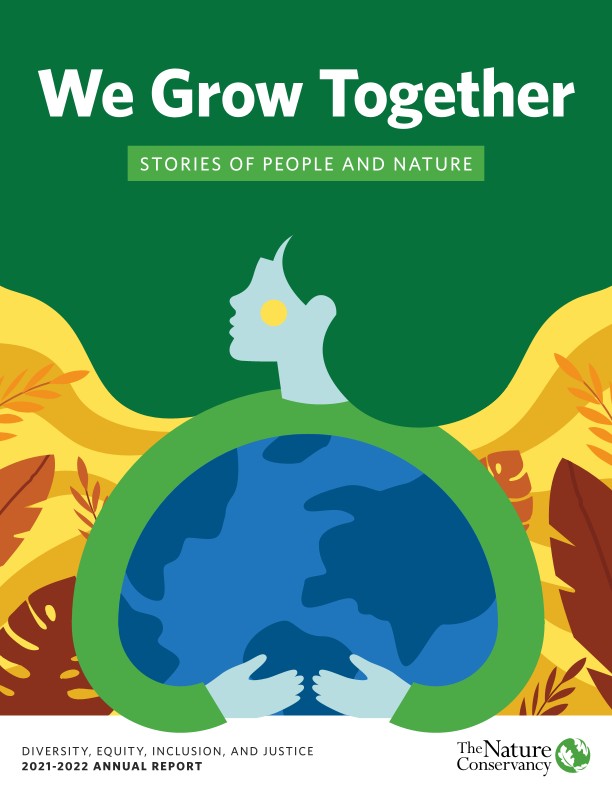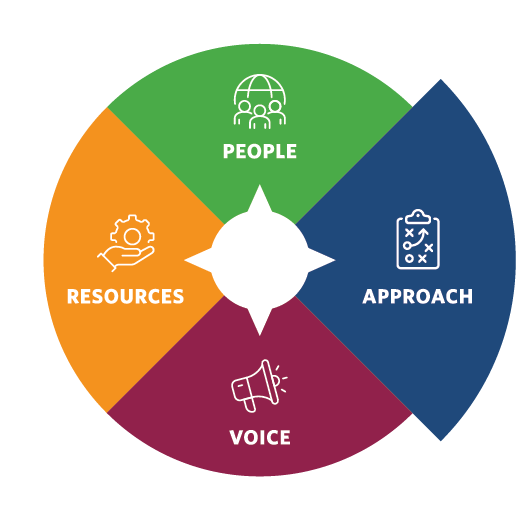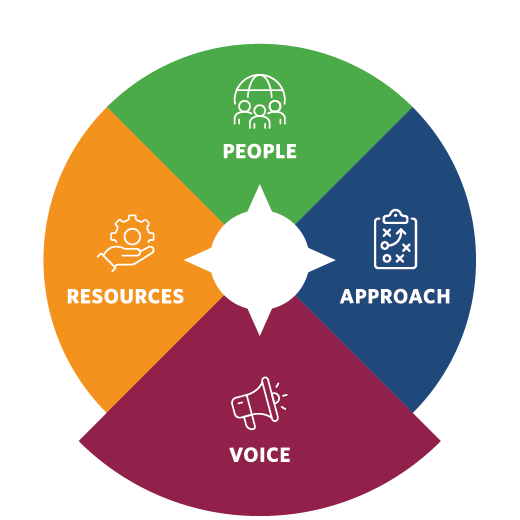
Accountability starts with us. Explore this year's report stories now as we continue our DEIJ learning journey.
We hope you enjoy exploring these learnings and engagements from colleagues across the globe. The four main sections of this year’s report are inspired by TNC’s DEIJ Compass, which serves as our organizational framework for infusing DEIJ values in every aspect of our work. To get a better understanding of each section, we encourage you to watch the introductory videos from some of our amazing staff.
Thank you for your interest and support to continuously improve and carry out our shared vision for a more diverse, equitable, inclusive and just TNC.
Four Pillars of TNC’s DEIJ Compass
-

People
Highlighting the colleagues and partners advancing our shared 2030 goals.
-

Approach
Centering human rights and well-being to help people and nature thrive.
-

Voice
Amplifying diverse perspectives through communication and advocacy.
-

Resources
Examining our global investments and funding models through a DEIJ lens.
People
A look at the people, partners and projects that advance our goals for 2030 and beyond.
A Welcome Message from Leadership
Staff Stories
Explore our People section
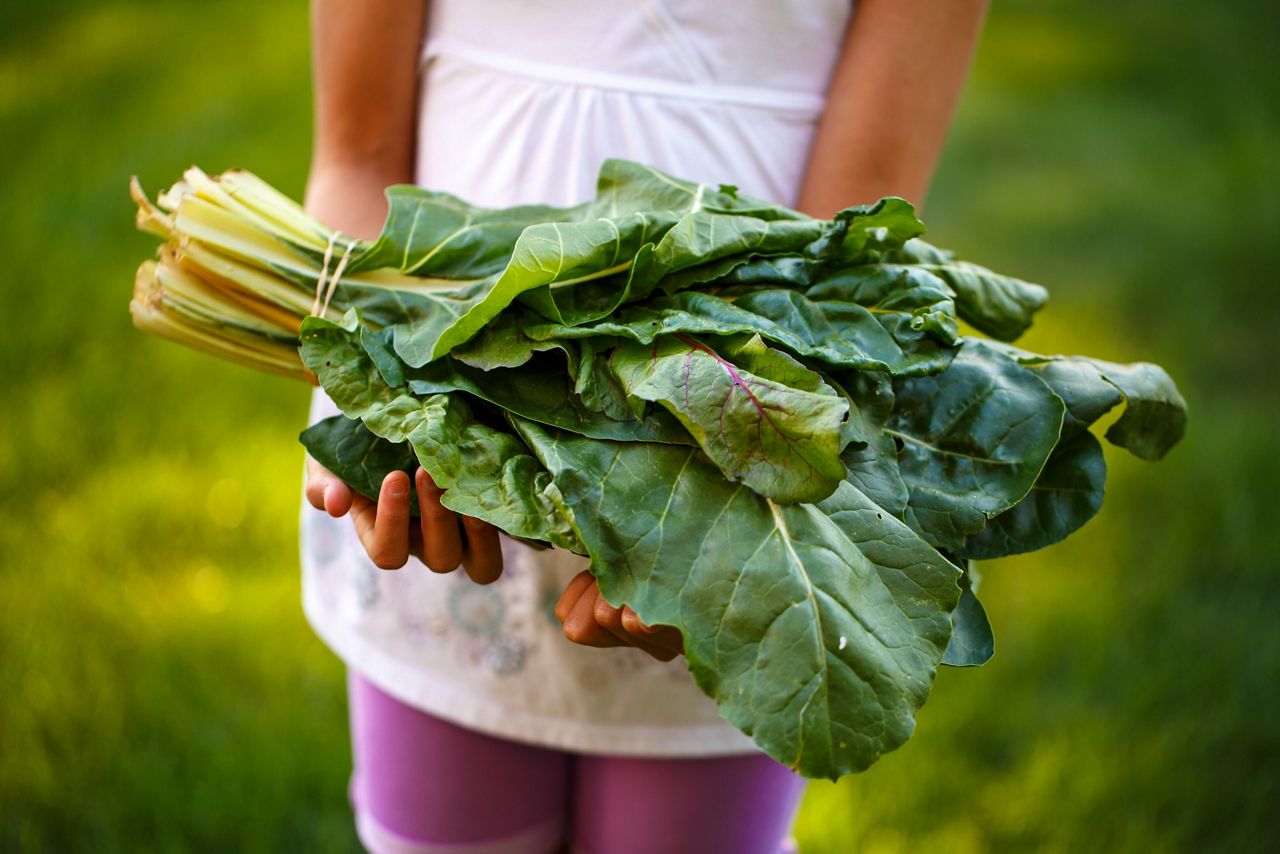
Global Foodscapes Team Boosts DEIJ
Throughout 2022, the Global Foodscapes team, under the Provide Food and Water strategy, connected with experts and resources across the Conservancy to develop a framework for incorporating DEIJ into TNC’s Regenerative Foodscapes Strategy. This strategy touches down across the world, with each region bringing unique DEIJ conservation challenges, approaches and lessons learned. Some recent examples of this work include:
- Stakeholders in Kenya’s Central Highlands Ecoregion Foodscape (CHEF) underwent an extensive co-creation and co-learning process, and in 2023, received a DEIJ Action Fund award to improve DEIJ through Agriculture
- Leaders in the United States Midwest centered equitable solutions as key criteria in selecting a location for the Upper Mississippi River Foodscape.
- In Northwest India, teams work intentionally with small-scale farmers to enhance uptake of regenerative practices and improve farmer livelihoods.
- In the Argentinian Gran Chaco, the team is developing a Gender Action Plan, with first steps that focused on training, methodology, and designing gender-transformative activities for greater impact.
- Colombia’s Orinoquia Foodscape will take place in ecosystems that have a continuous history of traditional community management, and the conservation work will focus on elevating the voices, actions and choices of indigenous people and local communities.
- The global Foodscapes team is participating in a pilot program focused on understanding how regional Foodscapes teams are currently practicing equitable conservation. One outcome of this work is to develop a framework for continued knowledge exchange of equity products and approaches to share across current and future Foodscapes.
- Through our Grow Positive communications campaign, we are elevating producer stories and voices to position them as climate heroes leading the way to a nature-positive future. The campaign features food producers from across the globe who work on varying scales but are all facing similar challenges and using regenerative practices to address them. While enabling policies, practices and funding are critical, it is through the hands of these producers where on-the-ground changes happen, and their voices are often left out of the story. This campaign is hoping to change that by elevating them and the work they do.
“Explicitly having DEIJ in our strategy’s structure has encouraged the team to think critically about whose voices are represented in our project planning, who may be impacted by projects and activities, and how different groups may experience these impacts.”
— Alison Surdoval, Agriculture and Climate Scientist, TNC Provide Food & Water; Moraima Guzmán, Global Foodscapes Program Coordinator, TNC Provide Food & Water
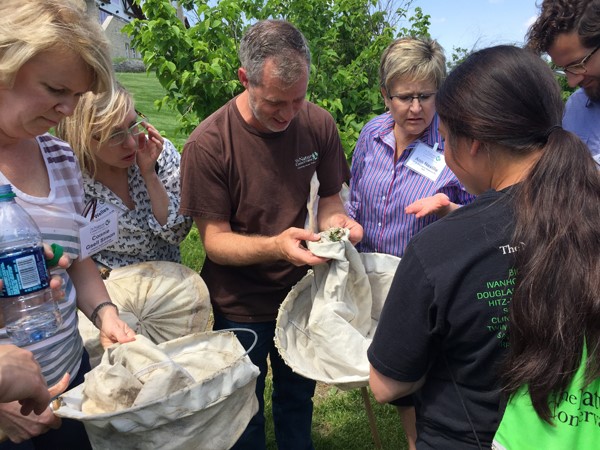
People Team Cultural Awareness
In the year since forming and implementing a Cultural Awareness Committee, the People Team has taken DEIJ focus to new heights, with actions that include introducing a cultural awareness segment during their monthly all-staff meetings. Each month, the committee either presents on several cultural topics from around the globe or invites other groups, such as the Employee Resource Groups, to have a platform to educate the People Team around Black History Month, Women’s History Month, Pride and other cultural observances.
“These have been learning opportunities for the entire People Team. Our team is rapidly growing, and we’re excited about its many layers of diversity.”
— People Team Cultural Awareness Committee (Amanda Wrona, April Meyer, Brandy Sparks, Kashanna Fair, Nadine Eichhorn, Militza Bedoya and Sasha Sper)
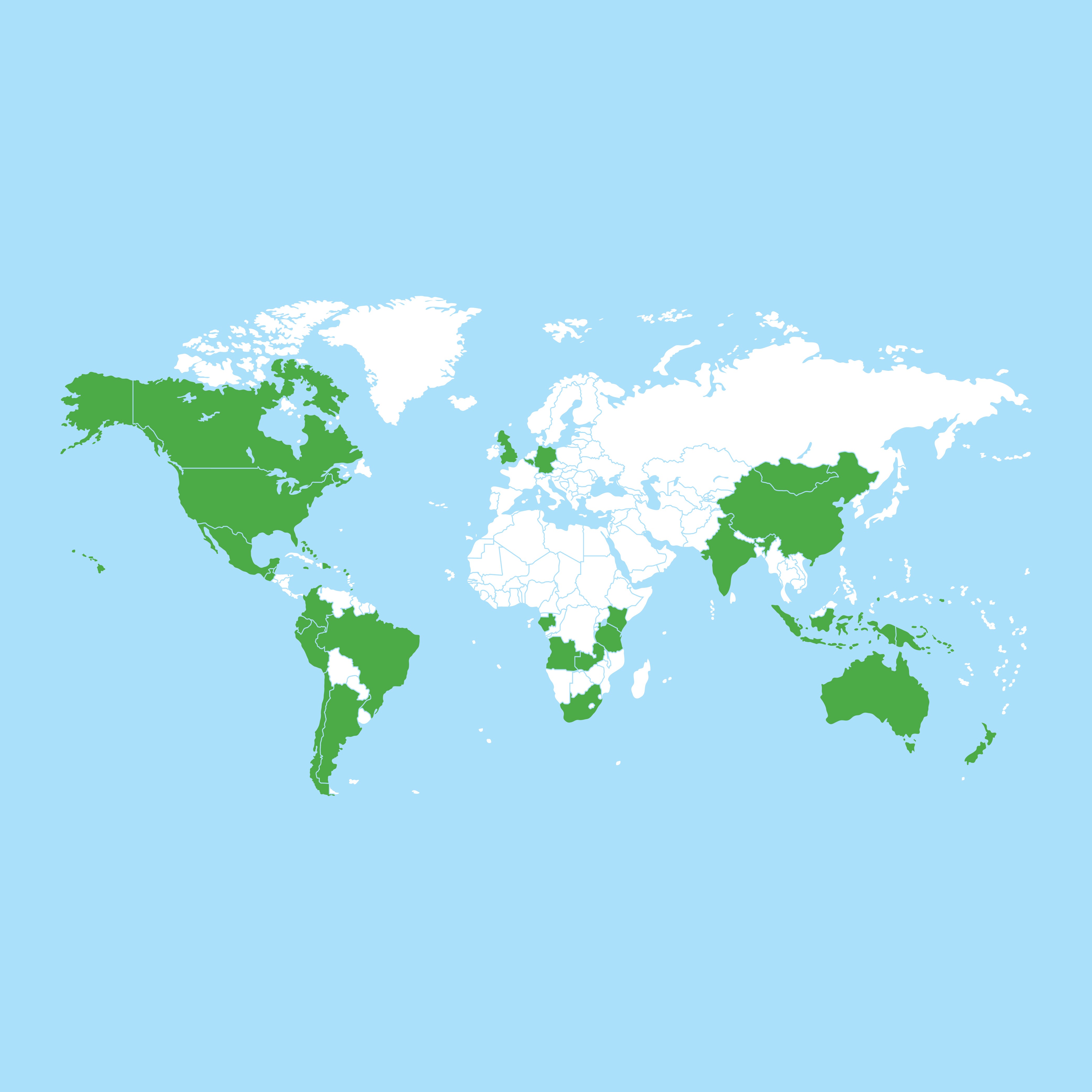
Global Data Dashboard
Last year, The Nature Conservancy’s Global HR Systems and Data team shared how they work to capture, analyze, and showcase a vast amount of self-reported data to paint a picture who we are as an organization with regard to age, experience level, socioeconomic background, race, country of origin, sexual orientation, neurocapability, and other demographics.
In the year since, the team has developed a People Dashboard that will further support TNC’s efforts to build a more diverse and equitable workforce by providing at-a-glance DEI data in the form of Work Composition maps.
“To make the best decisions, it’s imperative to have precise, accurate, timely, and trackable data," says Lesley Wilson, Global Diversity, Equity, and Inclusion (GDEI) Systems and Data Specialist. "But data is only useful if it’s accessible, and that’s why making data available is a commitment to accountability. I’m happy to see TNC embracing dashboards as a way to share data, and I cannot wait to see what we accomplish together.”
— Lesley Wilson, Global Diversity, Equity, and Inclusion (GDEI) Systems and Data Specialist
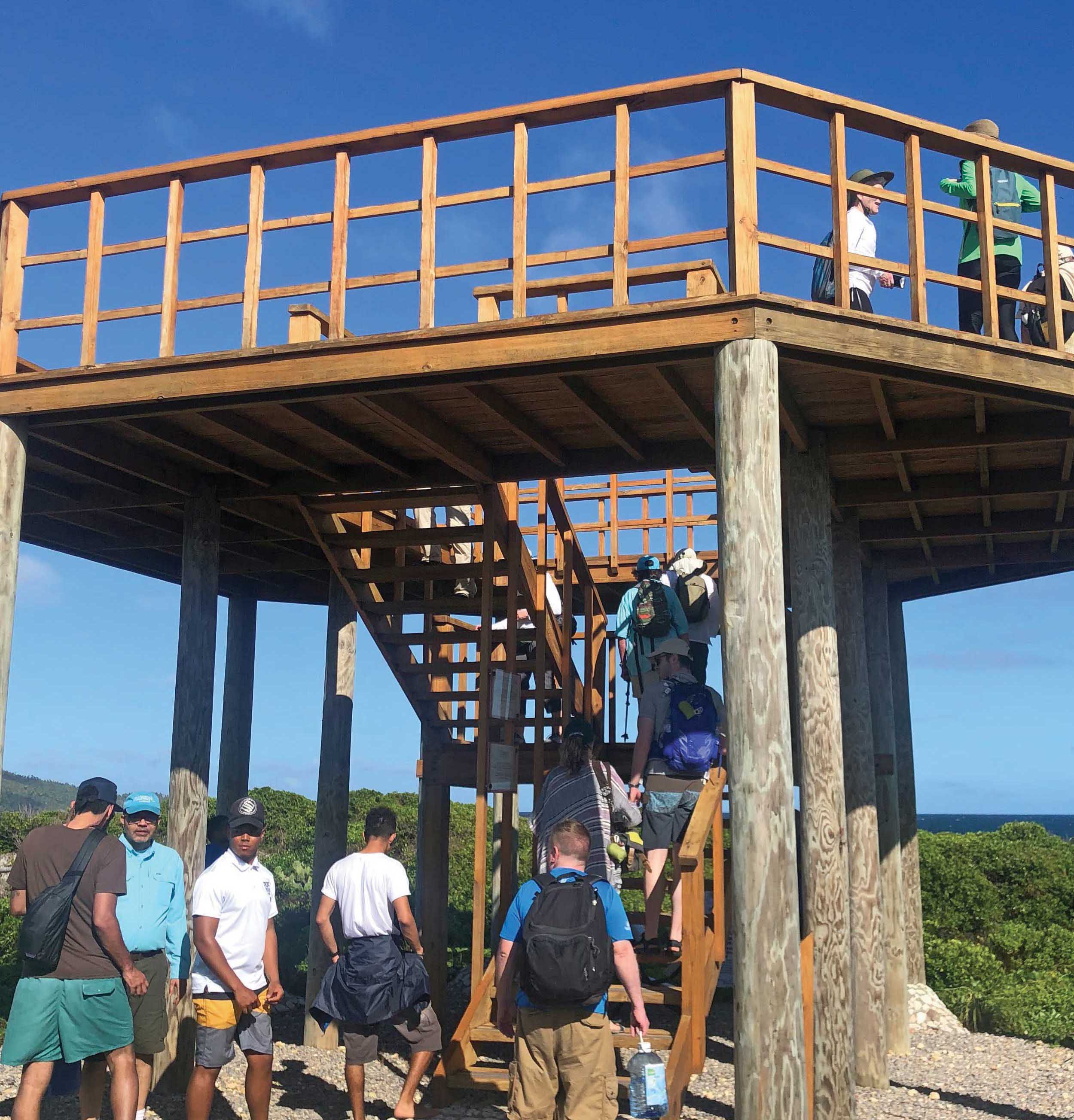
TNC’s First Global Staff Enrichment Week
Diversity was on full display at TNC’s first-ever Global Staff Enrichment Week (GSEW), held earlier this year in Brazil. The event welcomed nearly 80 attendees representing 22 countries who engaged in a wide array of presentations designed to engage and inspire TNC staff around topics ranging from our 2030 conservation goals to external affairs, finance, ethics, and more. In fact, several stories featured throughout this DEIJ Annual Report were inspired by those who presented at Global Staff Enrichment this year.
“Participating in projects like GSEW, focused on fostering a diverse and inclusive culture, allowed me to see firsthand how including DEIJ aspects in our work will lead us to greater innovation, collaboration, and overall success.”
—Ximena Paredes Arbues, Executive Coordinator, TNC Latin America
“It feels like DEIJ work at TNC is just getting started, and I can already feel a difference in the way we think about how we do our work and in the ways we interact with each other. I am excited to see what more we can achieve together in the DEIJ space.”
—Alyssa Melone, Executive Coordinator to the Managing Director, TNC Global Conservation
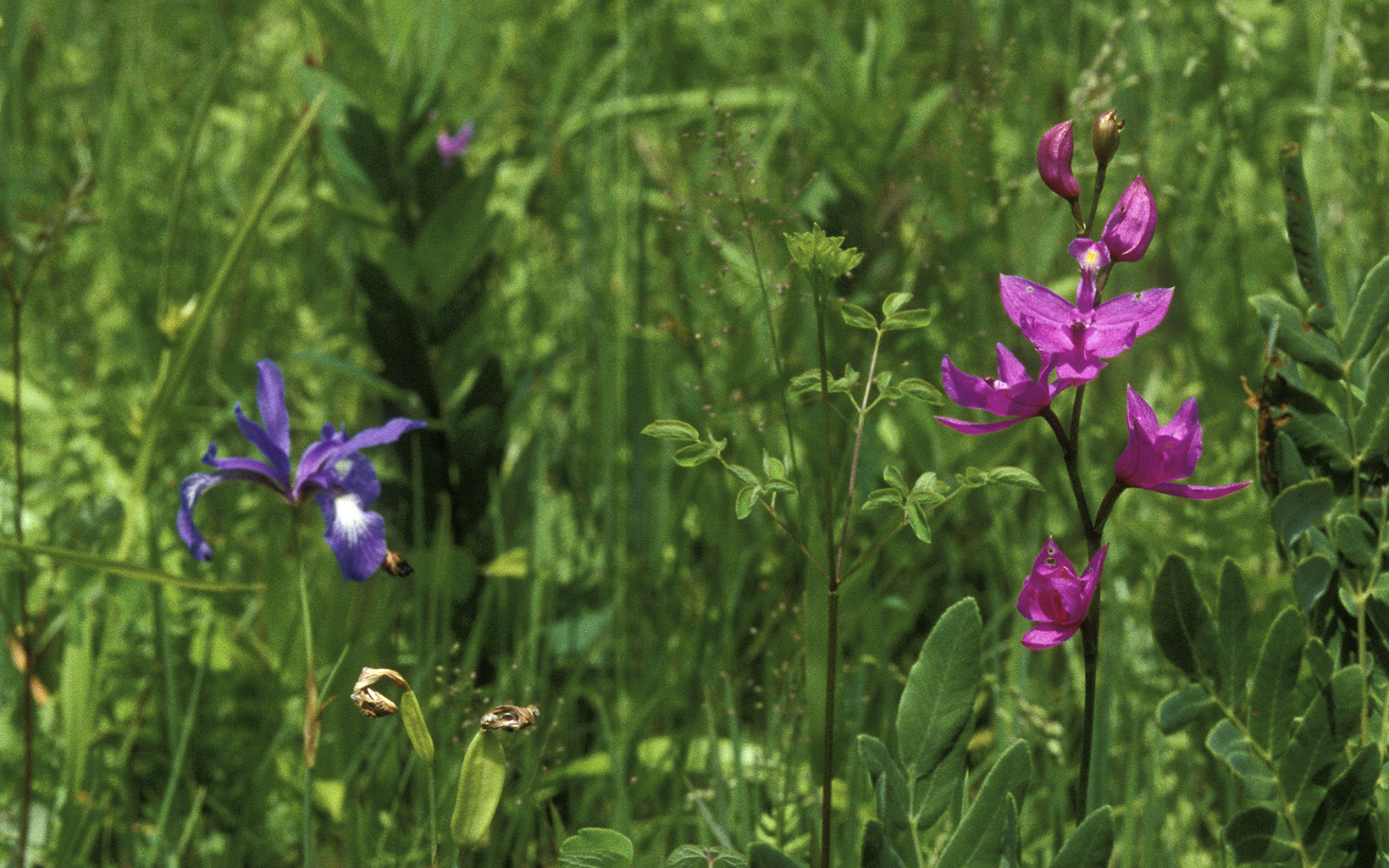
Illinois JEDI Committee Expands Focus
Several TNC chapters made strides toward gender equity the Women In Fire program. (Watch: REI Presents Women In Fire). In 2022, the Illinois chapter built on that momentum by forming a Justice, Equity, Diversity, and Inclusion (JEDI) committee. In addition, the group is currently in the process of hiring a Women In Fire Coordinator, with specific focus on candidates who identify as women, transgendered, and/or gender nonbinary.
“Aside from continuing to learn from and strengthen our own DEIJ initiatives, the greatest thing we can do is to share our successes and shortcomings in growing the DEIJ cultures of our partners.”
— Nathan Speagle, Illinois Women In Fire Coordinator and Burn Crew Manager.
Trustee Spotlights
TNC relies on a dedicated network of more than 1,500 volunteer leaders, who advance our global mission by lending their unique perspectives, expertise and leadership to conservation worldwide.

Alaska
Ben Mallott of the Alaska Federation of Natives has been named chair of the TNC Alaska “Board of the Future” committee. Working with fellow board chair, Melanie Osborne of Chugach Alaska Corporation, an Alaska Native corporation, the committee delivered recommendations at a June retreat that included a framework for board composition and makeup; parameters for targeting Board diversity that include skill set, identity, industry representation, philanthropic giving, and geographic representation; and a vetted list of prospective Trustee candidates in Alaska.

Colorado
Shortly after collaborating with BU colleagues to launch a statewide DEIJ Action Plan, the Colorado Board of Trustees deepened its commitment last year with measures that included:
• Co-creating a set of DEI metrics and intentional opportunities for increased and ongoing Trustee involvement
• Welcoming two new members from the federally recognized Southern Ute and Ute Mountain Ute Tribes
• Securing multiyear funding and approval to launch a DEIJ Fellowship in partnership with Great Outdoors Colorado
“We are cultivating a group of leaders who embrace the value of diversity, an inclusive environment, and equitable practices. We strive for TNC Colorado leadership to reflect a diversity of racial and gender identities to foster a culture of inclusivity and equity that recognizes and elevates all voices.”
— Katie Millard, Trustee Relations Outreach Manager, TNC Colorado

Oregon
Throughout 2022, two Oregon Trustees, retired pediatrician Dr. Catherine Kordesch and retired land use attorney Mark J. Greenfield, dedicated an average of two days per month to a learning journey known as the Oregon Land Justice Project. The program, which was fully endorsed by the TNC Board, featured collaborative sessions between trustees, TNC Oregon staff, and partner organizations. The overarching goal of the project was to repair land-based relationships with Indigenous groups through actions that include repatriation, sharing, and advocating for shared legal access.
“DEIJ is now central to my work on the Board of Trustees of the Oregon State Chapter of TNC, because it has become central in my travels and my private life. As a result, I now see Nature with a different, more complex lens.”
— Catherine Kordesch, MD, Retired Pediatrician and TNC Oregon Trustee
“When the Coalition of Oregon Land Trusts initiated the Indigenous Land Justice Project in 2021, I was eager to learn more about the history, customs, and traditions of the Indigenous Peoples of the Pacific Northwest. That program has only strengthened my interest in supporting Native American efforts to reacquire the lands that were stolen from them.”
— Mark J. Greenfield, Retired Land Use Attorney and TNC Oregon Trustee
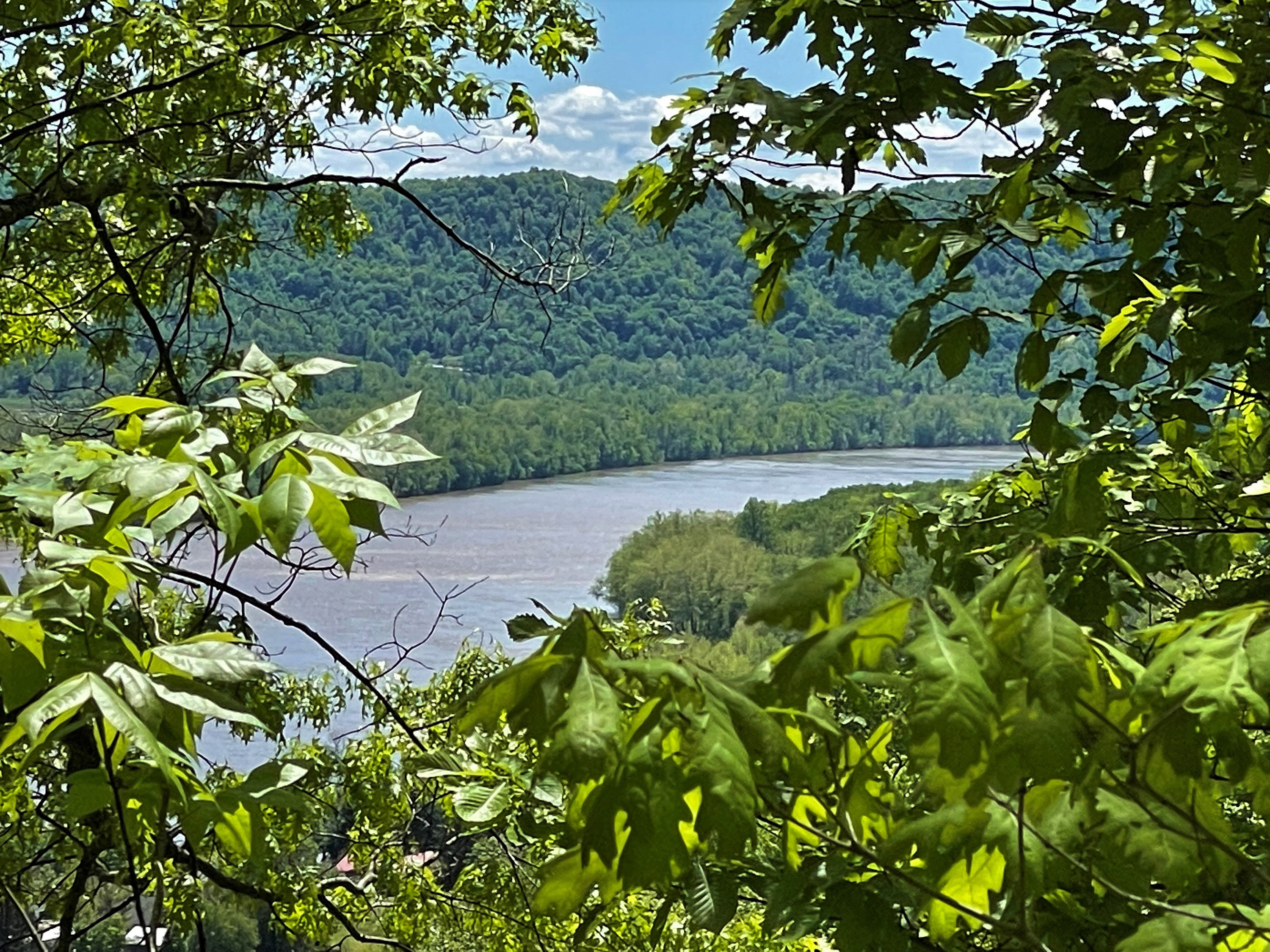
Ohio
As Director of American Indian Relations for the Ohio History Connection, Ohio Trustee and Tribal leader of the Pokagon Band of Potawatomi in Ohio Dr. Alex Wesaw manages relationships with 45 federally recognized Tribes across the U.S. that have a connection to the lands now known as Ohio—a region where no Tribes are currently recognized at the federal level.
Two years ago, Wesaw invited TNC to host 14 Tribes for a learning exchange with local and state legislators at the sixth annual Tribal Nations Conference in Columbus, Ohio. Under Wesaw’s guidance, organizers hope build on this successful collaboration as a model for TNC to advance Tribal relations and achieve shared conservation goals in regions across the globe.
Q: How have you helped TNC forge relationships with Tribal partners in your region?
A: I'm a new Trustee, so I'm still learning the ins and outs, but I'm really excited about ways we can challenge this organization to think about tribes as the governmental entities that hold sovereign powers. Two years ago, we invited TNC to participate virtually in the Tribal Nation's Conference as a way to learn about TNC’s goals as an organization and how it can better intersect with Tribes in as many as 10 U.S. states.
Before I became Trustee, we had an application to take land into trust in South Bend, Indiana, inside the city limits. It was a big deal because we had to negotiate with the local and state governments, and they were not being very responsive. But we held continuous meetings and with some of the legislators who were passionate about making Indiana the land of Indians again, so, I'm eternally grateful for their courageousness in helping us get the land back.
My Tribe is finding ways to cross promote that benefit not only us, but the greater goals of TNC. There's a lot of potential there for the work ahead, and I'm happy to be one actor in that.
Q: What are your hopes for the future of TNC’s Tribal partnerships in the U.S.?
A: In my experience, many people don’t think about Tribes as governmental entities that are separate and sovereign in the United States. I just would challenge TNC chapters throughout the United States and around the world to think about ways you can engage with Indigenous people in a way that aren’t imposing your goals on them but working collaboratively to come up with goals together that serve everyone. Tribes have a separate sovereign status governmentally that they can do things basically the same that states can do.
There are 50 chapters of The Nature Conservancy; I'm wondering why there's not 574 chapters of The Nature Conservancy that work with each of the federally recognized tribes. I realize that's a big goal. Maybe we can start with a few, and maybe we start regionally, but we have to start somewhere. I hope to see it happen in my lifetime.
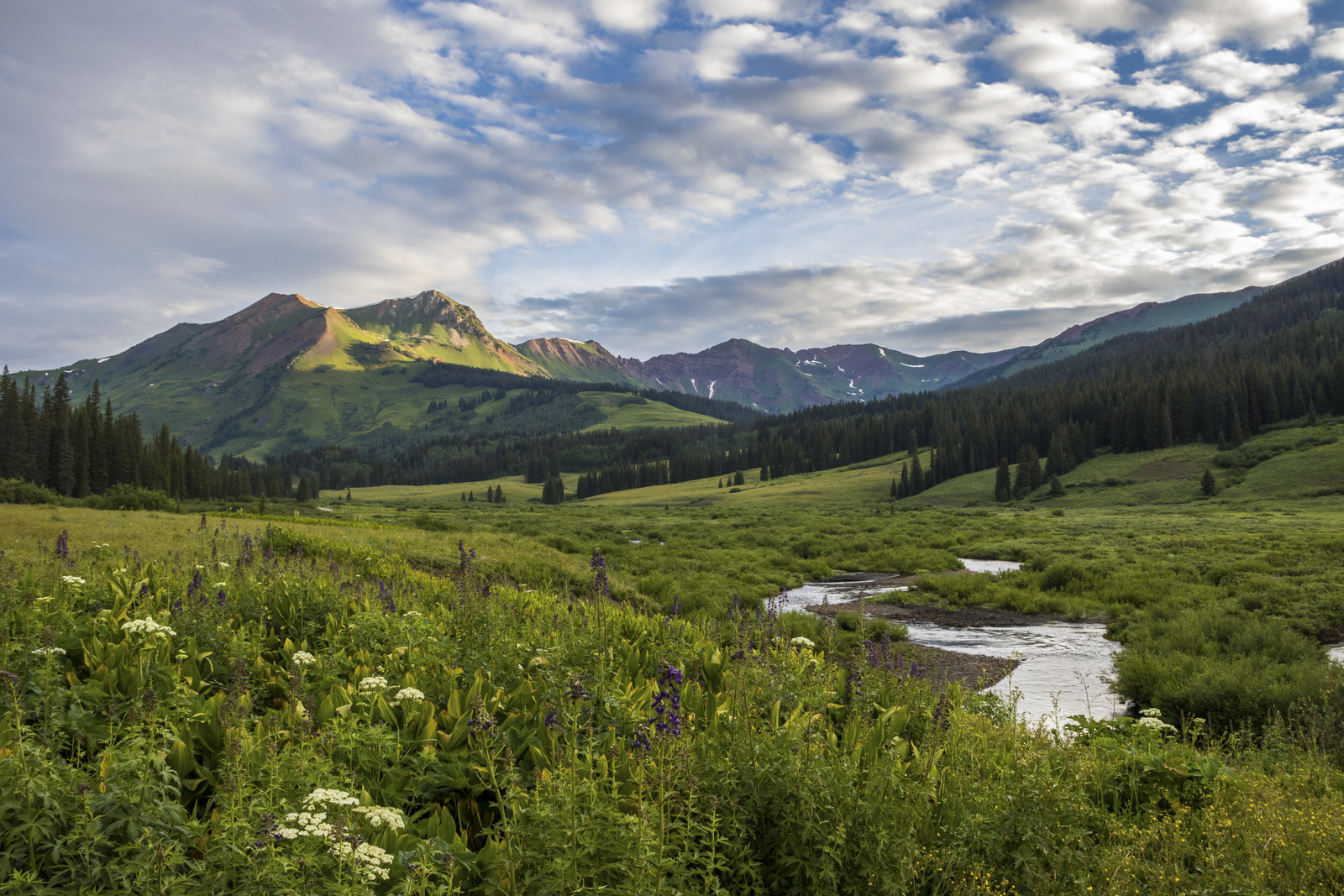
Hawaiʻi and Palmyra
At an October 2022 retreat, the Hawaiʻi and Palmyra Board of Trustees approved the adoption of a Commitment Statement that outlines aspirational steps over the next three years to expand and diversify while developing a deeper understanding and application of the region’s complex history. In the initial stages of this learning journey, the board will focus on strengthening bonds, building synergies, and incorporating mutual learning initiatives within the chapter’s Justice,
Equity, Diversity, and Inclusion (JEDI) staff working group.
Q: Tell us about why you’re motivated to center DEIJ in your work on the Board?
A: The board supports the value and practice of Aloha ʻĀina across the chapter’s work. Aloha ʻĀina is defined in many ways, and it is a concept that can take many years and experiences to fully understand. In our work we embrace the literal translation of “deep affection or love for land,” and we also aspire to support the leadership and authority of communities to have ownership and responsibility to achieve the vision of nature and people thriving.
Q: What do you hope for the future of DEIJ on your Board and at TNC?
A: Looking ahead, the board’s working group is focused on addressing the strategies and outcomes found in the board’s DEIJ statement. It is reviewing timelines, next steps, and a vision for strategies in our work and/or committees. It also drafted learning journey framework and is reviewing the board’s recruitment criteria. The board recognizes that this process takes time, and we are pleased with the thoughtful insights, engagement, and commitment of our Trustees.
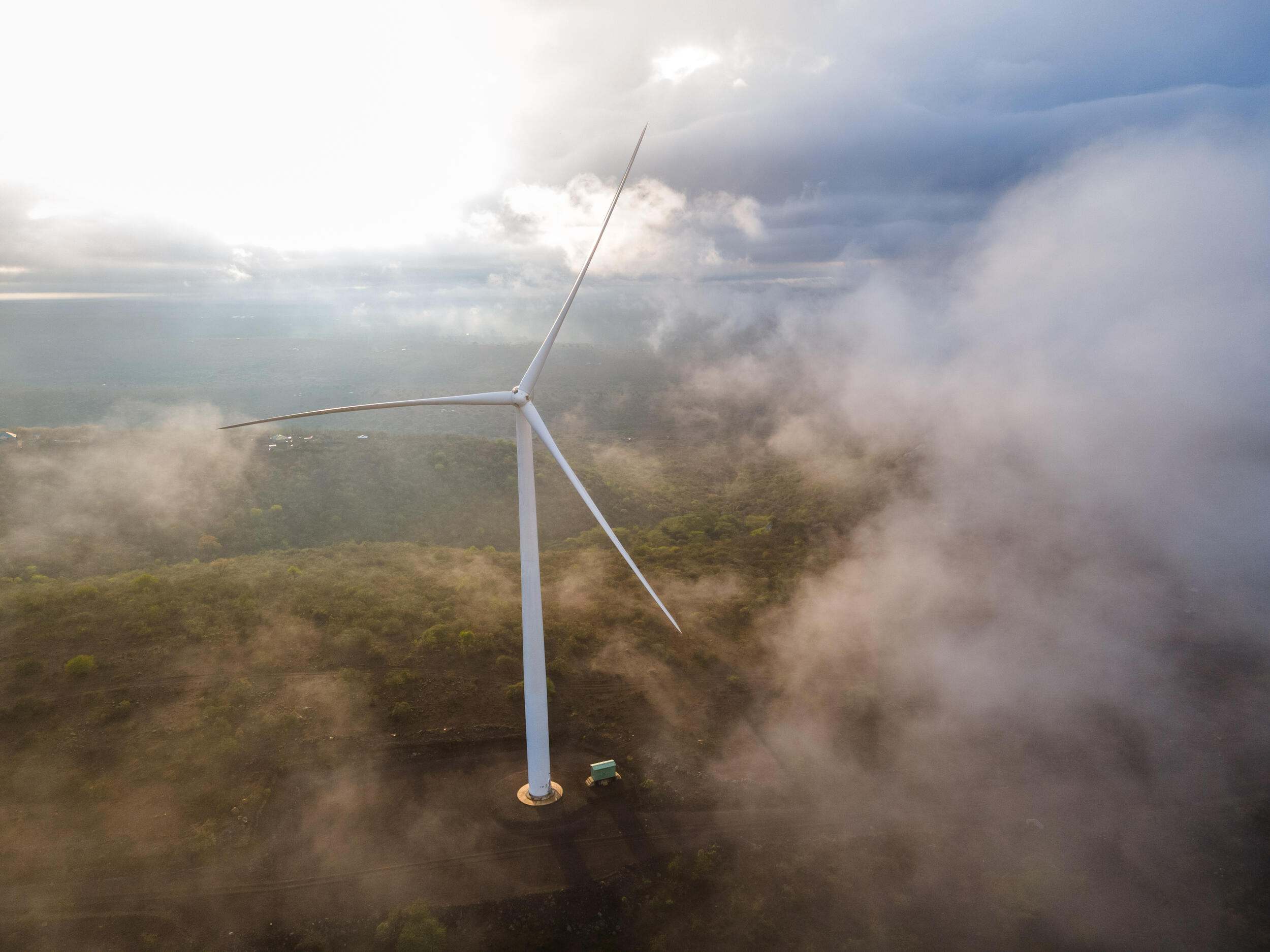
Pennsylvania & Delaware
TNC Trustee Anton Andrew brings nearly 20 years of experience in social justice activism to his current role as TNC’s first-ever DEIJ Ambassador for Pennsylvania and Delaware. Of particular focus for Anton is the Promise of CITIES program, which urgently takes on the dual threats of biodiversity loss and climate change by helping disproportionately vulnerable urban communities leverage support and maximize resilience.
Q: How does your work demonstrate an opportunity for accountability by TNC?
A: TNC is uniquely positioned to serve this planet and the people that inhabit it. That starts with serving our staff, our board, and our communities. Until we unequivocally demonstrate a commitment to diversity, equity, inclusion, and justice, we remain part of the problem. We must have the humility to accept and acknowledge that until our workplaces are living up to our own egalitarian values, we cannot claim to speak for those we work with or aspire to work with. Our vision of a world where people and nature thrive requires us to be a part of the solution.
Q: What most excites you about your work right now?
A: I’m excited by the yet-unrealized potential of the CITIES program in places like Wilmington and Philadelphia to alter the way TNC and other like-minded organizations partner with historically ignored and marginalized communities. This program will allow us to collaboratively problem-solve around these cities’ greatest environmental challenges by empowering young people from all backgrounds to become a force for themselves, their communities, and the planet.

Employee Resource Groups (ERGs) at TNC
From storytelling to community building to policy review, our nine global ERGs ensure our employees are recognized, appreciated and included in important discussions.
Download
Join us on our journey towards accountability by checking out some of our latest DEIJ-related projects and learnings.
DOWNLOADDownload
Find stories and learnings from across the globe featuring Diversity, Equity, Inclusion and Justice projects and reflections.
DOWNLOAD
Approach
Human well-being and rights are integral to all of our work to create a world where people and nature thrive.
Staff Stories
Explore our Approach section

Peru's Partners For Freshwater Access
Much of Peru’s freshwater lies beyond the towering Andes in the Amazonian rainforest, just out of reach for the country’s rapidly growing population. But there may be an ancient solution to this persisting challenge: TNC together with the Lima Water Fund and corporations have been rehabilitating a complex system of amunas, infiltration channels built by the native Huari people more than 1,000 years ago.
“I believe that inclusion and equity must be part of our work from now on. This has to do with being better people.”
— Aldo Cardenas Panduro, Peru Freshwater Coordinator, TNC Latin America
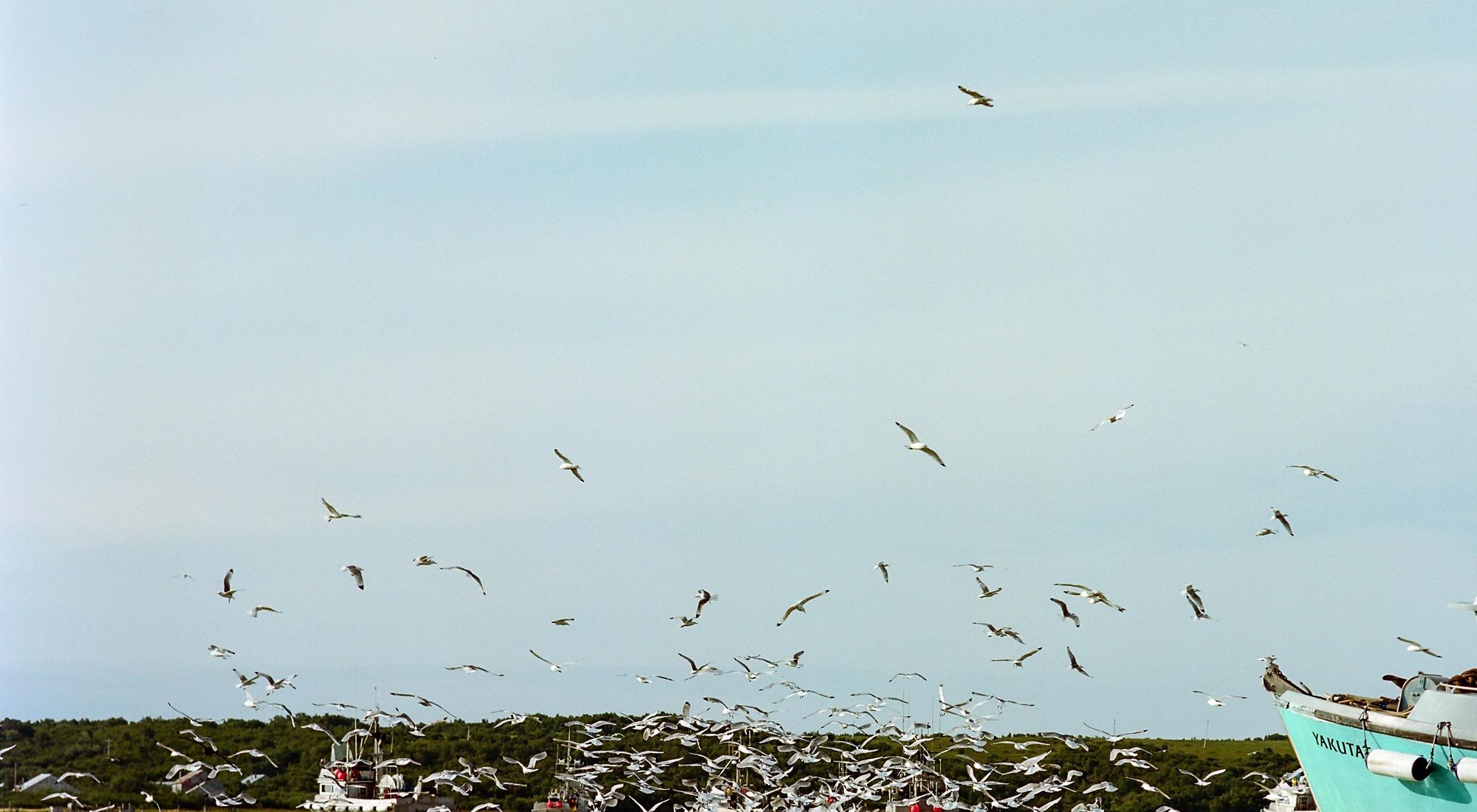
Bristol Bay Taps Next-Gen Leaders
In Bristol Bay, Alaska, questions about the future and how to navigate a changing world share a common thread: The next generation will need to be ready. Now in its second year, the Ciulistet youth empowerment initiative has created a new professional network to serve emerging leaders from far-flung Indigenous communities throughout Bristol Bay. The name Ciulistet (pronounced chi-list-eat) comes from the Central Yup’ik language, meaning “being able to navigate forward based on where you’ve come from.”
The program is helping future Indigenous leaders in Bristol Bay understand and navigate the many systems and bureaucracies that dictate how Alaska Natives live on and from their traditional homelands. The group emerged from a TNC-coordinated learning exchange between Bristol Bay youth and Indigenous youth leaders in Southeast Alaska.
“I'd like to emphasize something that our partners have expressed with me: There's no true ‘on ramp’ to learning how federal agencies or tribal governments really work or how to get involved, and there are few networking opportunities in a region where distance and remoteness and cost of travel are obstacles. Ciulistet provides one way forward in overcoming these challenges.”
— Caitlin Hedberg, Director of Philanthropy, TNC Alaska
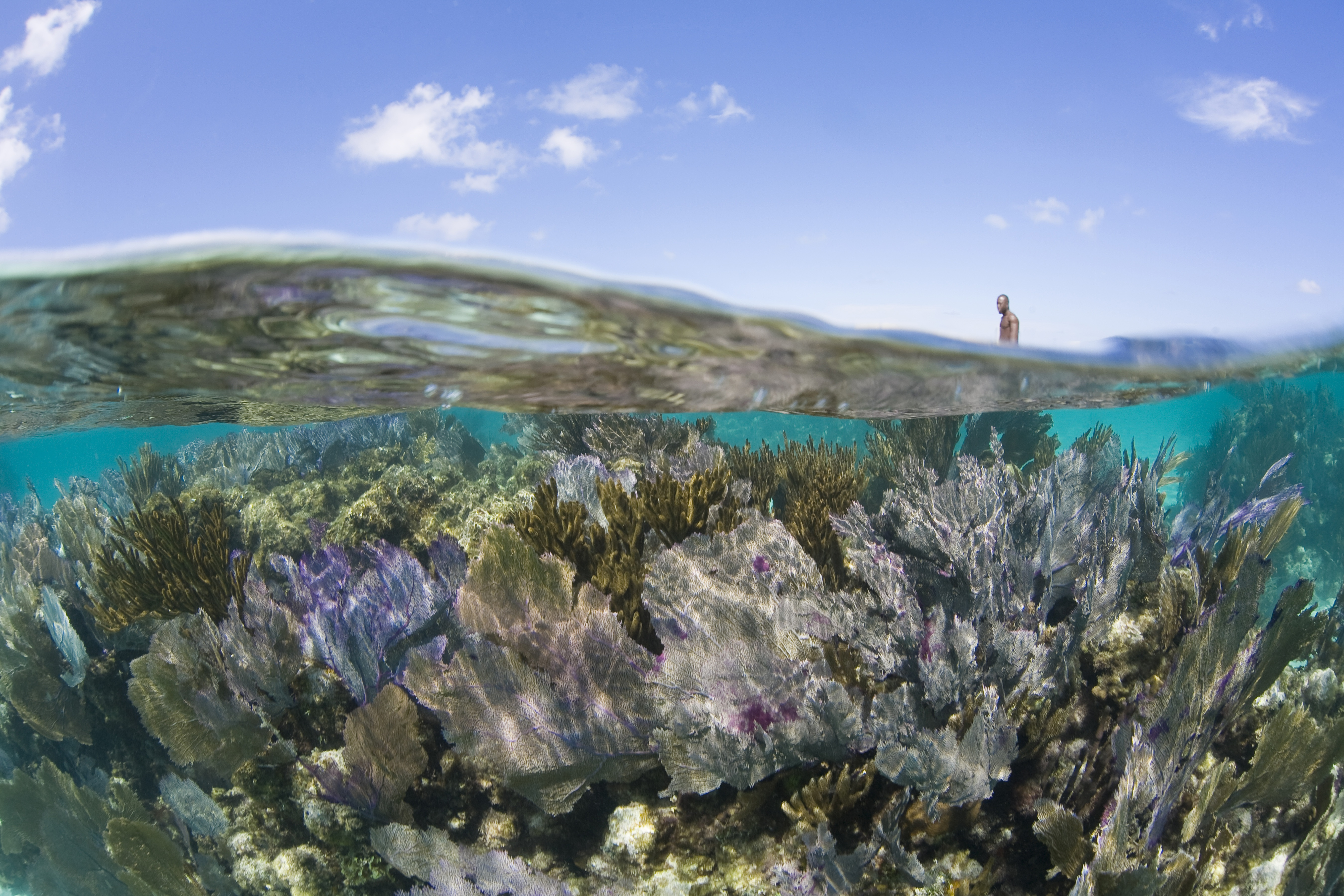
Belize Women in Sustainable Mariculture
TNC has long partnered with local fishers, governments, nonprofits, and private sector entities in Belize to enrich seaweed habitats that drive much of the region’s socioeconomic opportunity.
In 2017, the partnership expanded to create more inclusive opportunities for local women through training provided by the Placencia Producers Cooperative Society Limited (PPCSL). Over the next two years, trainees leveraged TNC support to organize and form what is now the locally registered Belize Women’s Seaweed Farmers Association (BWSFA). In 2020, BWSFA secured the Hatchet Caye Farm Site off the coast of La Placencia with two primary objectives:
- Nurture a healthy habitat where small vegetative propagules of Eucheuma cottoni and other species of seaweed can thrive.
- Leverage this natural resource to expand sustainable economic opportunities for women.
The project was immensely successful, helping launch locally women-owned enterprises. TNC Belize is excited to continue buildling on partnerships like these.
"Our approach to developing a seaweed mariculture industry in Belize is an inclusive one. Our goal is to create an industry that is not gender biased. This is an activity that both male and female stakeholders can work together to achieve. Families can work together in developing, maintaining, harvesting, and developing seaweed value-added products—all to achieve a supplemental or an alternative source of income for their family."
— Seleem Chan, Mariculture Specialist and Safety Officer, TNC Belize

Utah Program Advances Six Tribal Youth
In August, seven Tribal youth graduated from the third-annual Native American Tribes Upholding Restoration and Education (NATURE) Program at The Nature Conservancy’s Canyonlands Research Center and Dugout Ranch. The students co-developed a curriculum with TNC and the Utah State University, Blanding to enable a learning exchange of cultural traditions with scientists, ranchers, land managers, and Indigenous scholars. The NATURE Program’s mission is to help young people forge connections and exchange ideas for combining western and Indigenous conservation approaches to achieve a sustainable future in the face of a warming climate.
“TNC’s acknowledgement that Native people are the original stewards of our lands and have an extensive knowledge about management and stewardship practices is an important first step. The next step is to bring in that knowledge and co-create programs that actively seek Native participation and knowledge.”
— Kristen Redd, NATURE Program Manager, TNC Utah
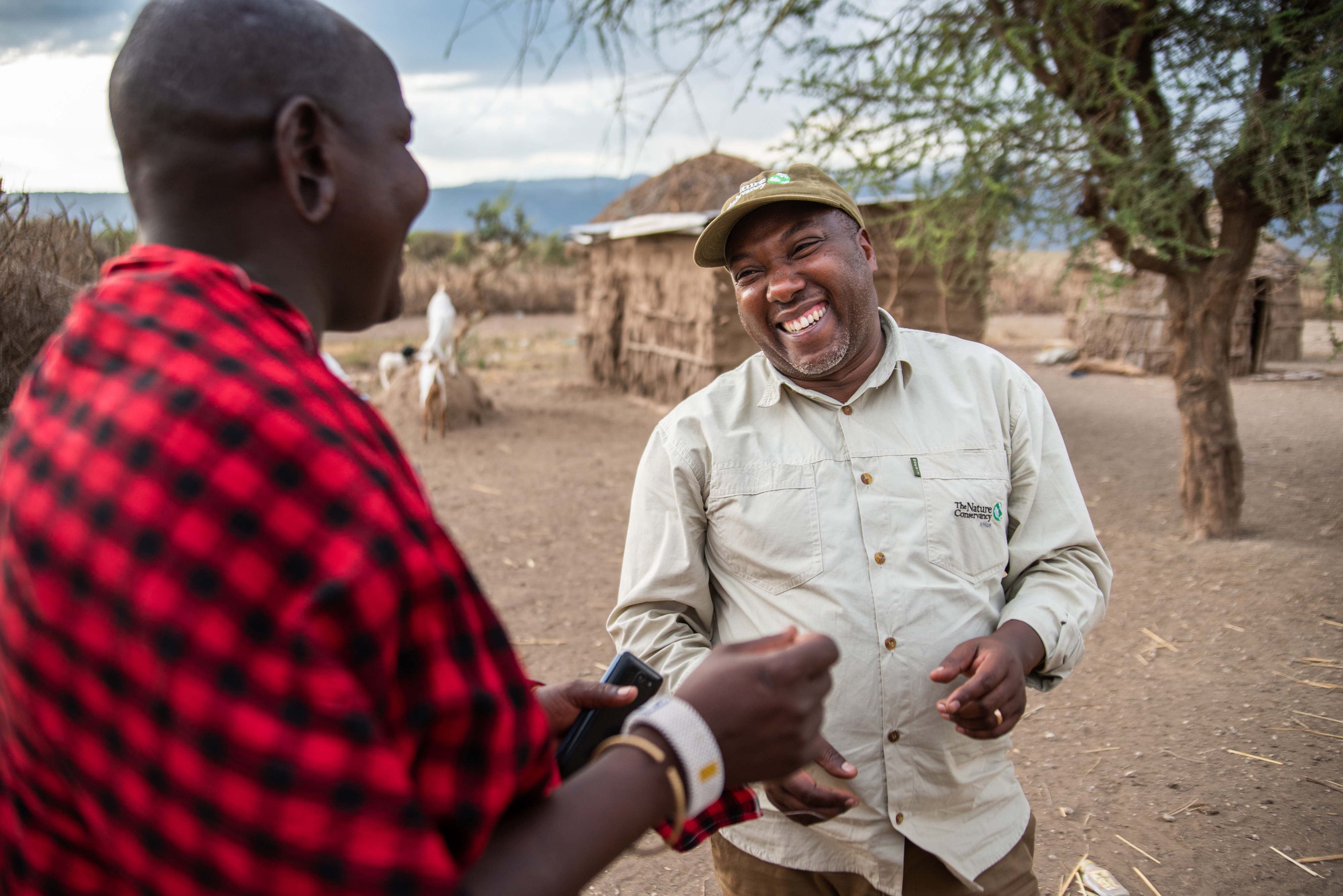
Africa Expands Indigenous Landscapes Str
When it was introduced in 2021, TNC’s Strengthening Indigenous Landscapes Strategy focused primarily on one landscape project in Northern Kenya. Now, the program has expanded to include five large landscapes in eastern and southern regions of the continent, where key partnerships are helping restore rights of tenure to the community-led institutions that steward Africa’s most vital grasslands, savannah forests, fisheries, and wildlife areas. In July, leaders from Africa shared Indigenous Landscapes Strategy updates, as well as highlights from Africa Year In Review at the TNC-sponsored 2022 Africa Protected Areas Congress in Kigali, Rwanda.
“This has been a year of unprecedented growth for the Africa Program, with over 35% of staff joining the team in the last year. To leverage capacity and get the greatest results, we are pushing ourselves harder to work holistically, to think about the implications of our work to address climate change, to conserve biodiversity, and to improve people’s lives.”
— Ademola Ajagbe, Regional Managing Director, TNC Africa
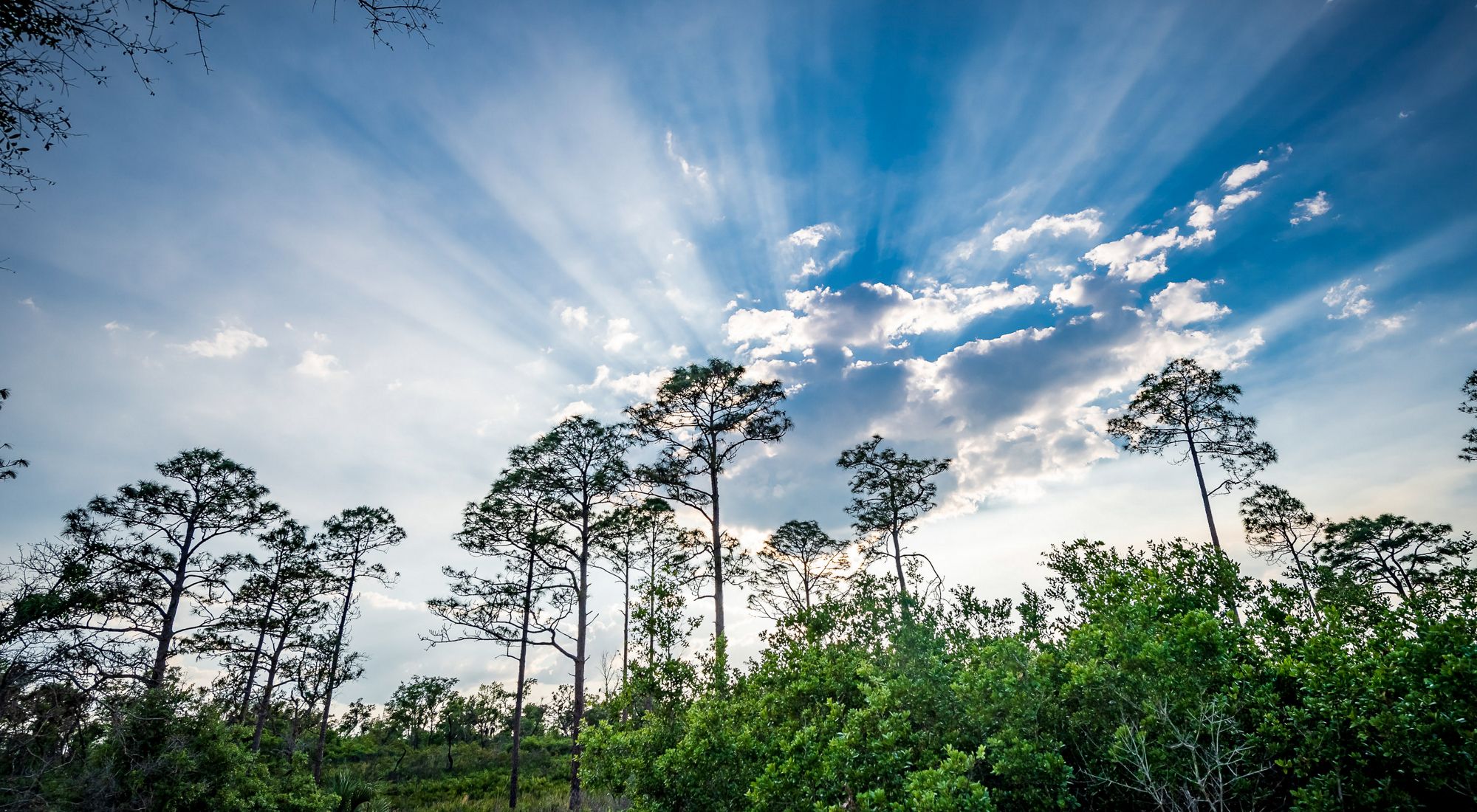
Texas Seeks To Save Longleaf Pine
Thanks to an ongoing partnership with the Alabama-Coushatta Tribe of Texas, TNC staff and partners in Southeast Texas were able to resume efforts this year to restore the native longleaf pine ecosystem through prescribed fire, after COVID set back burn plans.
The longleaf pine is critically important to the culture and customs of the Alabama-Coushatta, and its restoration reaches far beyond the tree's ecological value alone. Together, TNC and the Tribe are now working to reestablish a fire regime at the Roy E. Larsen Sandyland Sanctuary and on Tribal lands by putting as much beneficial fire on the ground as possible in 2023.
“Prescribed fire is critical to the landscape I manage in Southeast Texas, and Indigenous Peoples have used fire to manage forest systems like these for millennia. The longleaf pine is what makes this region so special, and it needs our help. Both TNC and the Tribe want to see these forests flourish once again, and together, we’re making that happen.”
— Shawn Benedict, East Texas Preserves Manager and Certified Burn Boss, TNC Texas

Mexico Carpentry Program Supports Locals
TNC Mexico's forestry strategy for the Yucatan Peninsula seeks to help communities lead conservation, but in this rural region’s largely male-dominated timber industry, women have traditionally been excluded from conservation decision making.
That’s one reason TNC supports Creciendo Raíces, one of several gender empowerment initiatives in Mexico’s Quintana Roo region that trains women to create and sell sustainable beekeeping equipment. In addition to vital economic support and workforce training for disadvantaged single mothers, the program provides alternatives to rampant illegal wood sourcing practices that are working to strengthen the local timber value chain.
“The great challenge in the inclusion and empowerment of women lies in carrying out an accompaniment with a gender perspective that expands from the initiative of the forestry women themselves. The forest can only be sustainable if women are included in the forestry value chain, giving them space for their social and business empowerment. The jungle is our companion, and we will not let it die.”
— Juana Sánchez, Project Coordinator, TNC Mexico
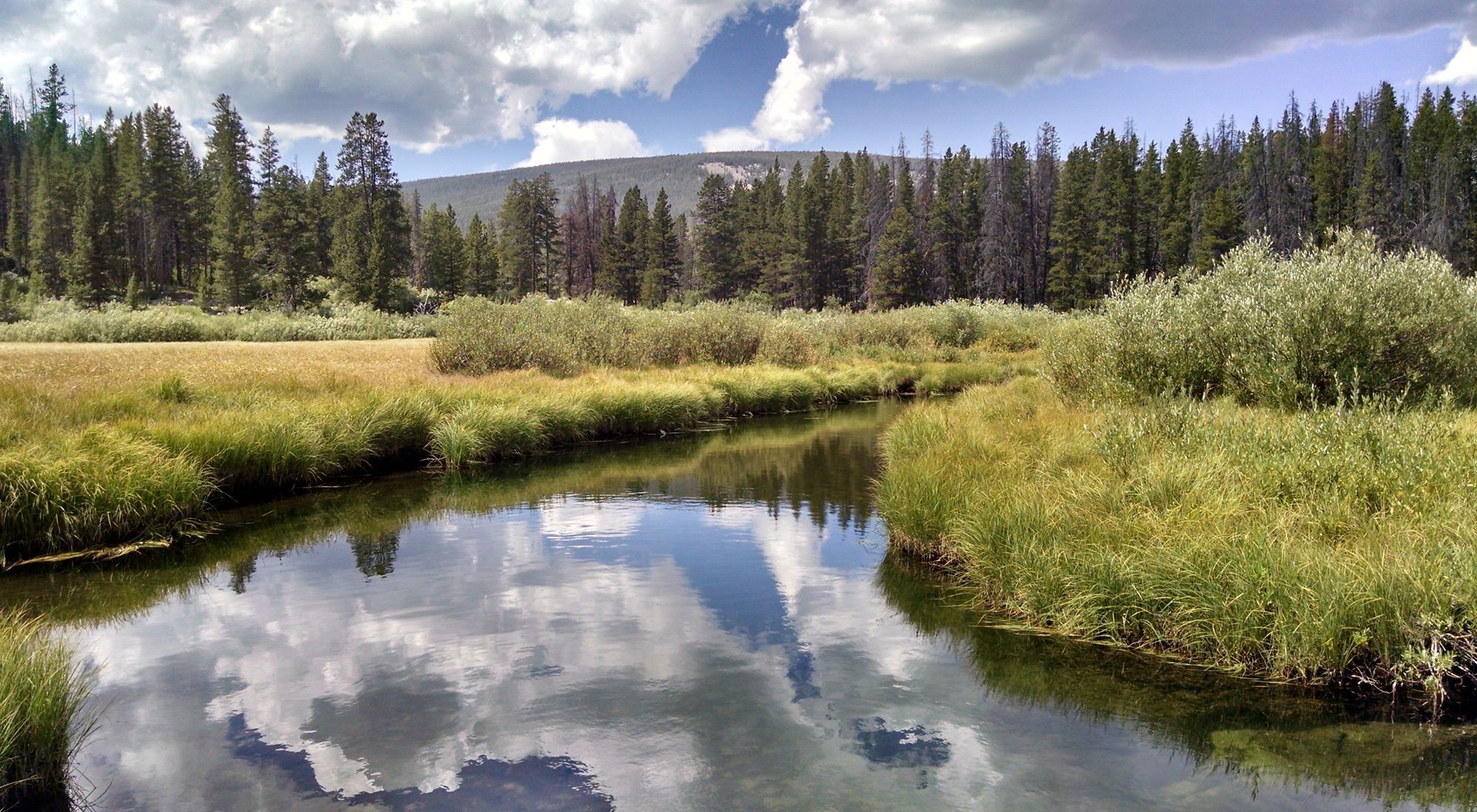
Montana Centers on Reforestation Efforts
In 2022, TNC leaders in Montana continued forging deeper relationships with Tribal elders and traditional fire practitioners from the Confederated Salish and Kootenai Tribe (CSKT). These relationships proved instrumental in the successful 2021 transfer of Safe Harbor Marsh Preserve back to the CSKT, the lands’ ancestral owners.
Now, the groups are working jointly with the U.S. Bureau of Land Management to restore public and private forests in Western Montana. Funded in part by the Bureau of Indian Affairs’ Reserved Treaty Rights Lands grant program, this learning and resource exchange will center on the CSKT’s centuries of knowledge in controlled burning.
“It is just and logical that TNC reaches out to the original stewards of the lands we are managing for advice and cooperation. TNC Montana’s co-stewardship work with CSKT has enabled us to give land back to the CSKT and start thinking about other land back opportunities in Montana.”
— Steven Kloetzel, Land Steward, TNC Montana

Wood For Life's Transformational Reach
Increasing the pace and reducing the cost of forest restoration is vital for Arizona communities and wildlife. However, finding markets and other uses for small-diameter wood is a challenge. Heating homes on the Navajo and Hopi Nations is one way this wood can do some good. To assist these communities, in 2020 TNC joined together with a network of organizations in northern Arizona, including the U.S. Forest Service, National Forest Foundation, and many others on the Wood for Life Program. This program oversees collection of low-value, downed wood as part of forest-thinning initiatives, the transportation of the lumber to the Hopi and Navajo Nations, and the coordination of volunteers who chop the wood into usable pieces and deliver bundles to the communities for home heating.
Now in its third year, the partnership has successfully expanded to other parts of Arizona, and in 2022 launched pilot programs in Colorado, New Mexico, and Idaho.
"It’s a win-win situation. One, we’re providing fuel to our community. Two, we’re actively engaging as stewards of the land on projects that are being initiated by organizations like the National Forest Foundation and the Forest Service. To me, it’s a perfect example of how nonprofits, NGOs, and agency partners can work together.”
— Marshall Masayesva, Hopi Program Manager for Ancestral Lands, TNC Arizona

Baltimore Witness Trees' Phase 1 Success
One of TNC's newest urban conservation programs in Baltimore, Maryland, celebrated the first phase of its community-led Witness Trees Project. The project featured inclusive and interactive community-led visioning workshop series, which invited residents to participate in the design and installation of 140 trees and 12 pieces of public art to honor past, present, and future in the historically African American community of Turner Station.
"Understanding the importance of whole communities in producing successful and long-term outcomes is why the MDDC chapter’s Baltimore Program seeks to build Turner Station’s trust, enhance their capacity, and grow their power. We are utilizing the Witness Trees Project as the multi-year, multi-partner mechanism to ensure community leaders are resourced with the social capital, capacity, and network necessary to implement their communal goals and aspirations.
TNC has demonstrated it is accountable to this community by supporting fundraising, networking, and storytelling of Turner Station via the Witness Trees project. From its fruition, the work has been driven by residents and continues to be adaptable to their needs and aspirations. We have dedicated the Baltimore Program’s 2030 strategic plan to Turner Station’s continued success and sustainability. Our level of investment in Turner Station speaks to our accountability."
— Andrea van Wyk, Community Project Manager, TNC Maryland

Virginia Lands/Lives Connect Communities
Last year, three summer interns—undergraduate Basia Scott, recent graduate Vanessa Moses, and graduate student Claudia Moncada—helped advance the Virginia Lands & Lives Project by expanding outreach to underserved communities and enriching interpretation of the places where TNC works. Project highlights included researching the historic enslaved community at TNC’s Brownsville Preserve, analyzing the places where our work intersect with Indigenous lands, and developing events for Spanish-speaking communities.
“This cohort of interns impressed us with their discoveries and really opened our eyes to how much we still have to learn about DEIJ.”
— Daniel White, Senior Conservation Writer, TNC Virginia

Washington Looks To Solve Greenspace Gap
Heatwaves are becoming increasingly common across the globe, and research shows urban areas without sufficient green cover are disproportionally vulnerable. To tackle this issue in Washington State, TNC researchers have teamed up for a multi-pronged, collaborative initiative known as Greening Research in Tacoma (GRIT), which focuses on two primary objectives:
1. Build a scientific knowledge base by continually monitoring temperature before, during, and after green infrastructure installation in historically low tree cover areas.
2. Raise awareness and engagement by inviting residents to participate in greening events and share their stories, experiences, and vision for community health.
The scientists leading this initiative have uncovered similar disparities in marginalized communities worldwide that lack sufficient access to tree cover and greenspace. As they work to raise awareness and apply real-world solutions at home, they believe GRIT can serve as a global model for advancing equitable access and engaging communities in the fight against climate change.
“Systemic inequities show up everywhere. In Papua New Guinea, women use the mangroves for their livelihoods—from gathering shellfish to important plant foods that grow there. But when these areas are valued for carbon, we see women pushed out of these spaces. In introducing new economies, like carbon markets, we need to be mindful of these existing systemic inequities.”
— Dr. Ailene Ettinger, Quantitative Ecologist, TNC Washington
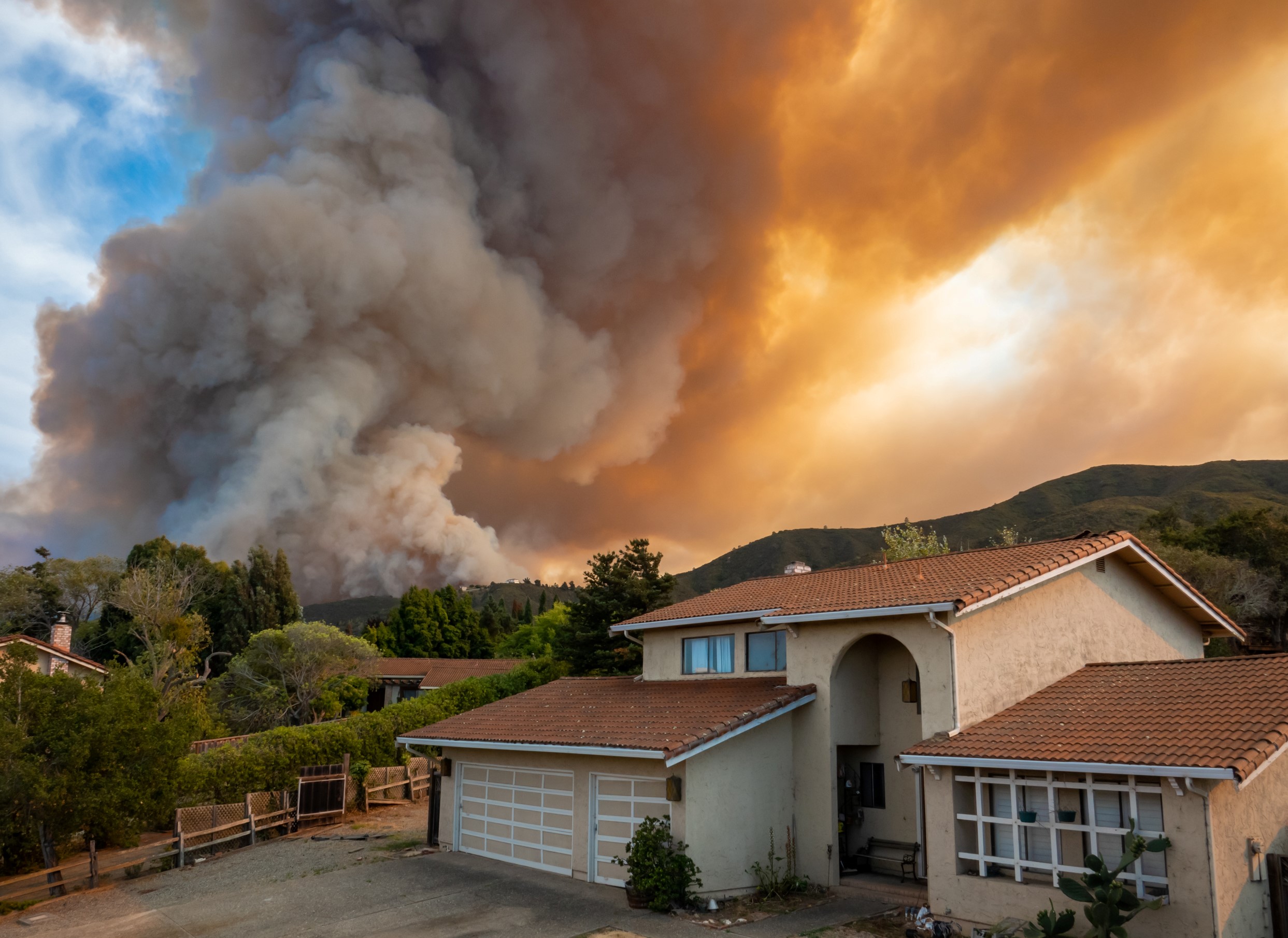
North America Fire Programs Expand Reach
The Indigenous Peoples Burning Network held its first nationwide workshop in fall 2022 in Hoopa, California. Hosted by the Hoopa Fire Department and attended by several Hoopa Tribal elders and IPBN members, the workshop included an information gathering exercise, “What is cultural burning?” The group also conducted a controlled burn and presented information on providing input to the federal Wildland Fire Mitigation and Management Commission.
Meanwhile, the Women-in-Fire Prescribed Fire Training Exchange (WTREX) was back in full swing in 2022-23. In 2022, organizers and partners hosted several successful events, including a Northern California WTREX hosted by the Karuk Tribe and focused on Indigenous women in fire and a WTREX in Virginia, which was attended by TNC CEO Jennifer Morris and CMO Meg Goldthwaite. This year, in addition to a WTREX in North Carolina, WTREX took its model outside the U.S., with events in Canada and South Africa.
“On our North America Fire team, we try to integrate DEIJ principles into all the work we do. That’s how we make long-term progress towards equity and justice. Everyone deserves to feel like they belong on the fire line, and I’m committed to using the privilege and power I have to work towards a world where that is true. At the same time, it’s important to create spaces where marginalized people can gather and speak openly about their experiences. These programs are great examples of the power those spaces can have.”
— Laurel Kays, Fire Learning Network Manager, TNC North America
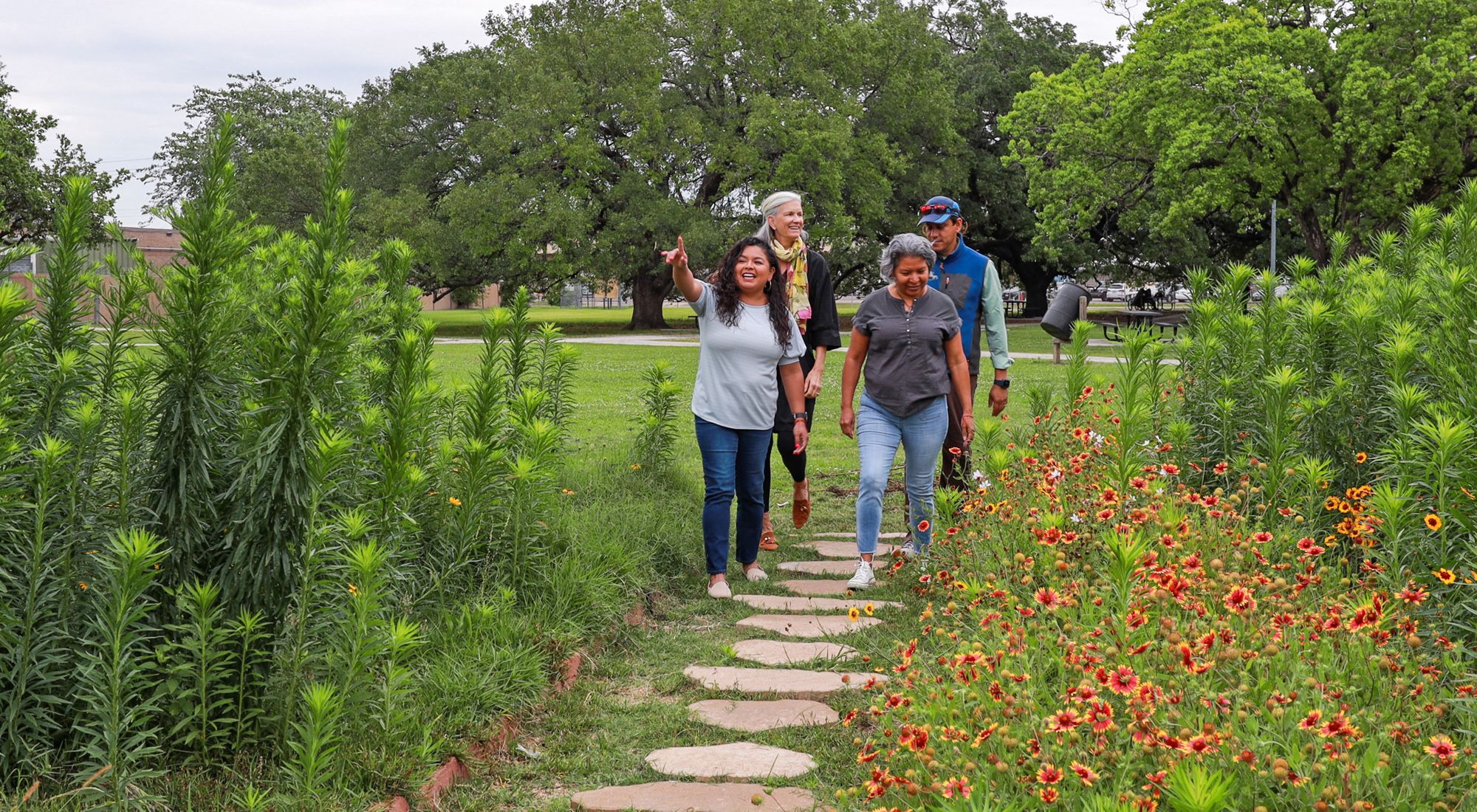
Greener Gulfton Connects Houston People
In response to a recent study revealing critical disinvestment and climate vulnerability in Houston's diverse Gulfton neighborhood, TNC collaborated with community partners to launch a multiyear conservation and engagement initiative known as Greener Gulfton. This initiative seeks to co-create climate adaptation, health, and biodiversity improvements using nature-based solutions. The full plan was released in October 2022 and is already drawing much needed investment and commitment by local governments and private funders.
One critical component of Greener Gulfton is to provide more opportunities for residents in what is known as a “nature-deprived” community to celebrate and interact with nature. To that end, TNC staff worked with community partners Madres del Parque and Connect Community to host Nature is Life!/¡La Naturaleza es Vida!, one of four events co-curated and designed by TNC and Houston communities of color to spotlight Indigenous, African American, Latino/a, and Asian experiences and perspectives.
Learn more about Greener Gulfton.
“Houston is the nation’s most ethnically, as well as one of only two designated biodiversity hotspot cities in the United States, yet it is highly vulnerable to climate disaster. With 85% of Texans now living in cities where conservation efforts have not traditionally worked, our work must reach deep into our human and wild communities.”
— Jaime Gonzalez, Houston Healthy Cities Program Director, TNC Texas
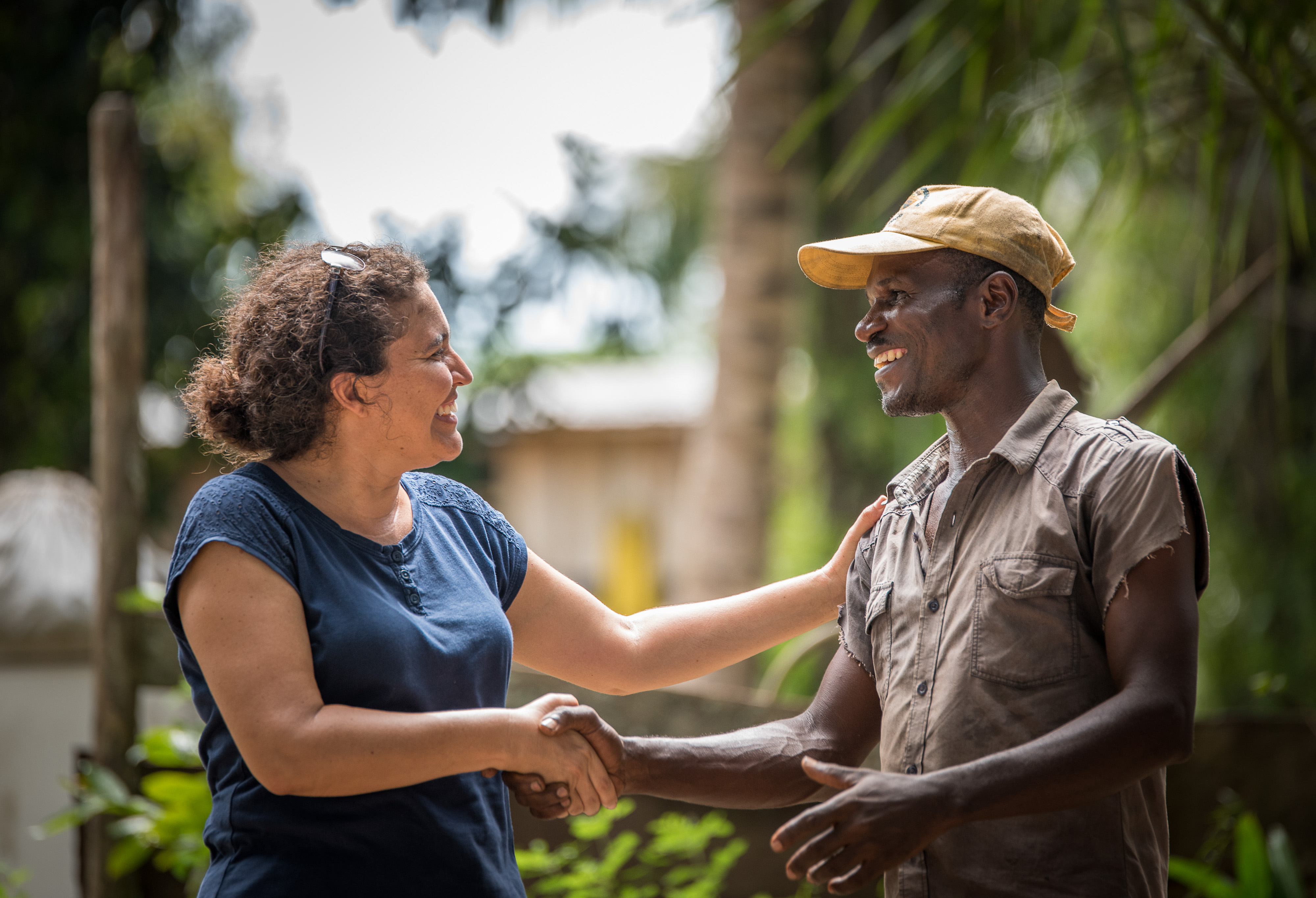
Africa Leaders Tackle Gender Gap
Africa is stepping up to the challenge of gender inequality in a major way, as illustrated in the newly released DEIJ 2023 Africa Equity Report. Team leaders in Angola-Okavango, Zambia, Kenya, Tanzania, and Tuungane launched a number of learning, training, and funding initiatives last year aimed at raising awareness, participation, and capacity for women in conservation.
“The greatest accountability starts with leadership, and TNC Africa has shown that commitment to gender issues in the workplace and in communities where we work.”
— Festus Zulu, Gender & Reproductive Health Advisor, Africa Region
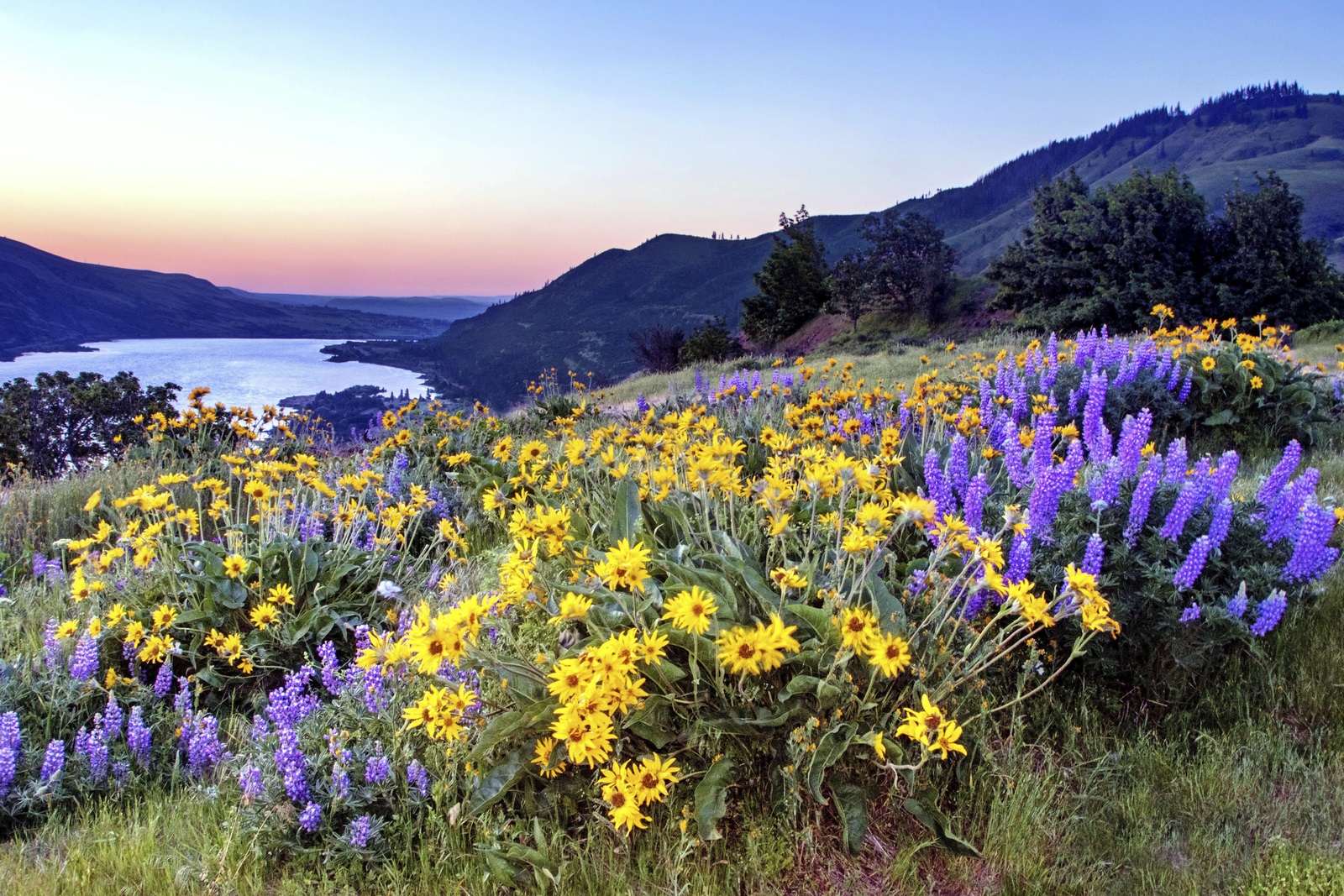
Oregon's Workforce Development Program
In 2021, TNC partners in Oregon launched Connecting Canopies, an initiative that blends community input with climate science to expand tree cover in historically disinvested communities. To advance its 2030 goal of 40% or more healthy tree canopy in the Portland metro area by 2030, Connecting Canopies has now introduced a pre-apprenticeship residential workforce development program that works to engage and educate community residents around the health benefits of tree care and restoration.
This learning exchange, which is among the recipients of TNC’s new DEIJ Action Fund, plans to expand outreach efforts over the next five years, with a specific focus on local and regional municipalities, BIPOC community-based organizations, and other Oregon partners seeking environmental justice through more equitably distributed green spaces and a more diverse green movement and workforce.
“Connecting Canopies has become a great opportunity for TNC to build relationships with community-based organizations and earn trust within diverse communities across the Portland Metro Region.”
— Sergio Lopez, Climate and Urban Partnerships Lead, TNC Oregon
Download
Join us on our journey towards accountability by checking out some of our latest DEIJ related projects and learnings.
DOWNLOADDownload
Find stories and learnings from across the globe featuring Diversity, Equity, Inclusion and Justice projects and reflections.
DOWNLOAD
Voice
Communication and advocacy are key to amplifying and empowering diverse needs and perspectives.
Staff Stories
Explore our Voice section
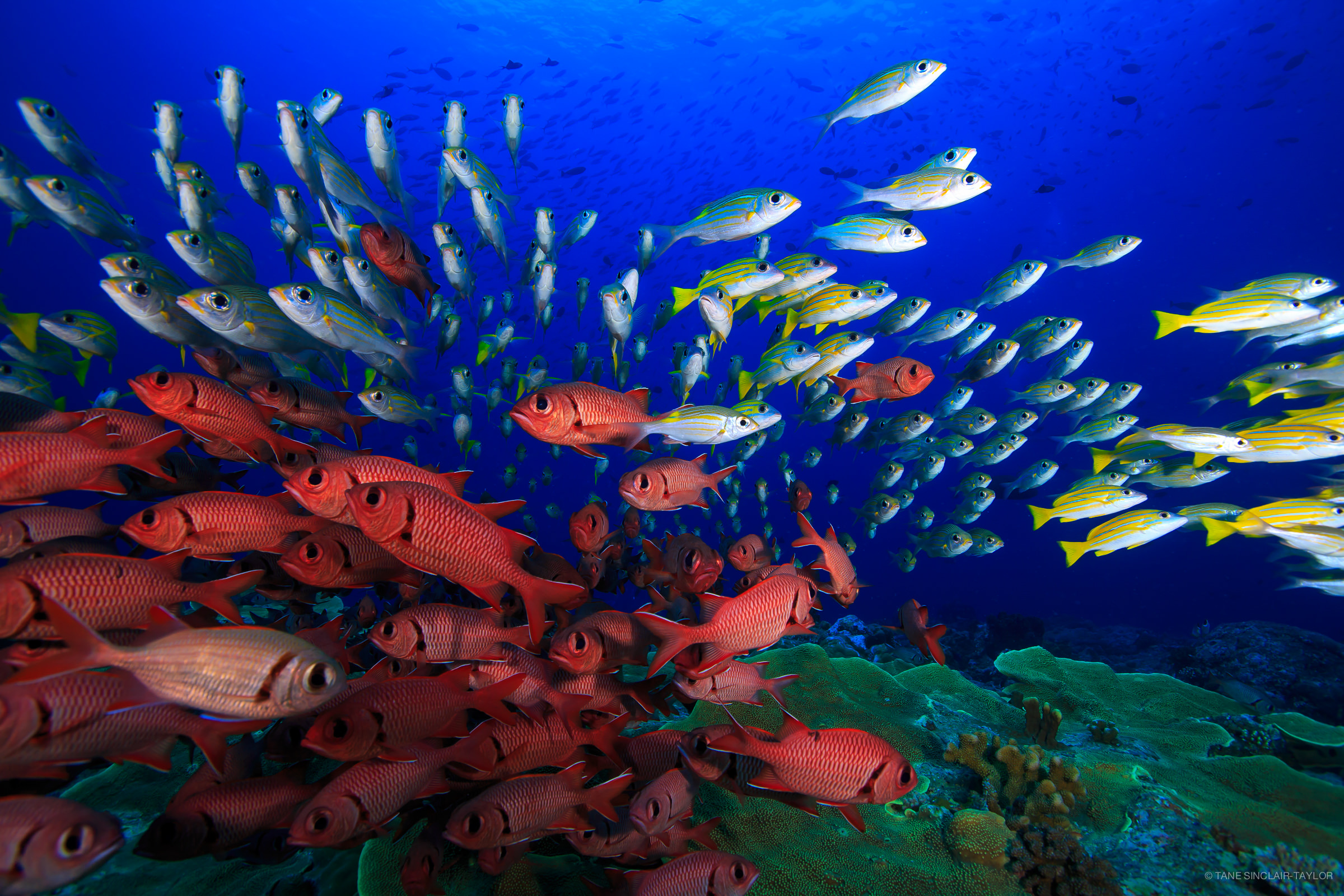
Cause Marketing Taps In Big Brands
With a concentrated focus on reaching younger, more diverse audiences, the Cause Marketing and Brand Partnerships team has worked collaboratively with DEIJ units across TNC to activate partnerships with Disney, Minecraft, Grove Collaborative, and others who strive to extend the message of conservation and equitable access to nature for future generations.
Minecraft
TNC teamed up with Minecraft for an awareness and fundraising campaign to reach audiences in the video game realm. The campaign, which raised more than $227,000 USD for TNC, leveraged Minecraft’s Rooted Together, an interactive map that gives players a first-hand look at mangrove and wildlife habitation conservation in a gamified setting. In addition to driving more than 350,000 on-demand views, Minecraft creators on four different continents hosted individual charity streams that allowed players to learn, interact, and contribute in real time.
“The goal of Rooted Together was not just to raise awareness for mangrove conservation; it was really to educate people on what the trees can do in the fight against climate change.”
— Grian, Minecraft Creator and TNC charity stream host | Learn More
Disney
In November, amid the highly anticipated release of Avatar: The Way of Water, Disney officially launched its global "Keep Our Oceans Amazing" campaign to amplify support for TNC and other organizations committed to ocean protection. Learn more about the campaign on our partnerships page.
“Working with corporate partners that are already engaging with younger and more diverse audiences gives me a lot of hope that we can continue to influence them to value social equity and think deeply about their environmental responsibilities.”
— Monica Michel, Associate Director, Cause Marketing and Brand Partnerships, TNC Global
Grove Collaborative
TNC also launched a partnership with Grove Collaborative to amplify stories of Indigenous-led conservation across Grove’s 2M+ eco-minded consumer base. Beginning January 1, 2023 and extending over the next seven years, Grove will contribute $1.5 million to the Emerald Edge program, providing direct support for TNC’s Canadian affiliate Nature United, which works to foster sustainable economies and protect ecologically important areas in the world’s largest coastal temperate rainforest.
"Protecting our forests, in particular old-growth forests, is an absolute imperative for climate, biodiversity, and the continued livelihood of Indigenous communities. While other consumer brands consider these forests as raw material for their single-use products, at Grove we are committed to doing what we can to drive positive impact. We are thrilled to partner with TNC to support this incredible ecosystem and the communities leading the way for forest protection.”
— Danielle Jezienicki, Vice President of Sustainability, Grove Collaborative Danielle Jezienicki, Vice President of Sustainability, Grove Collaborative | Learn More
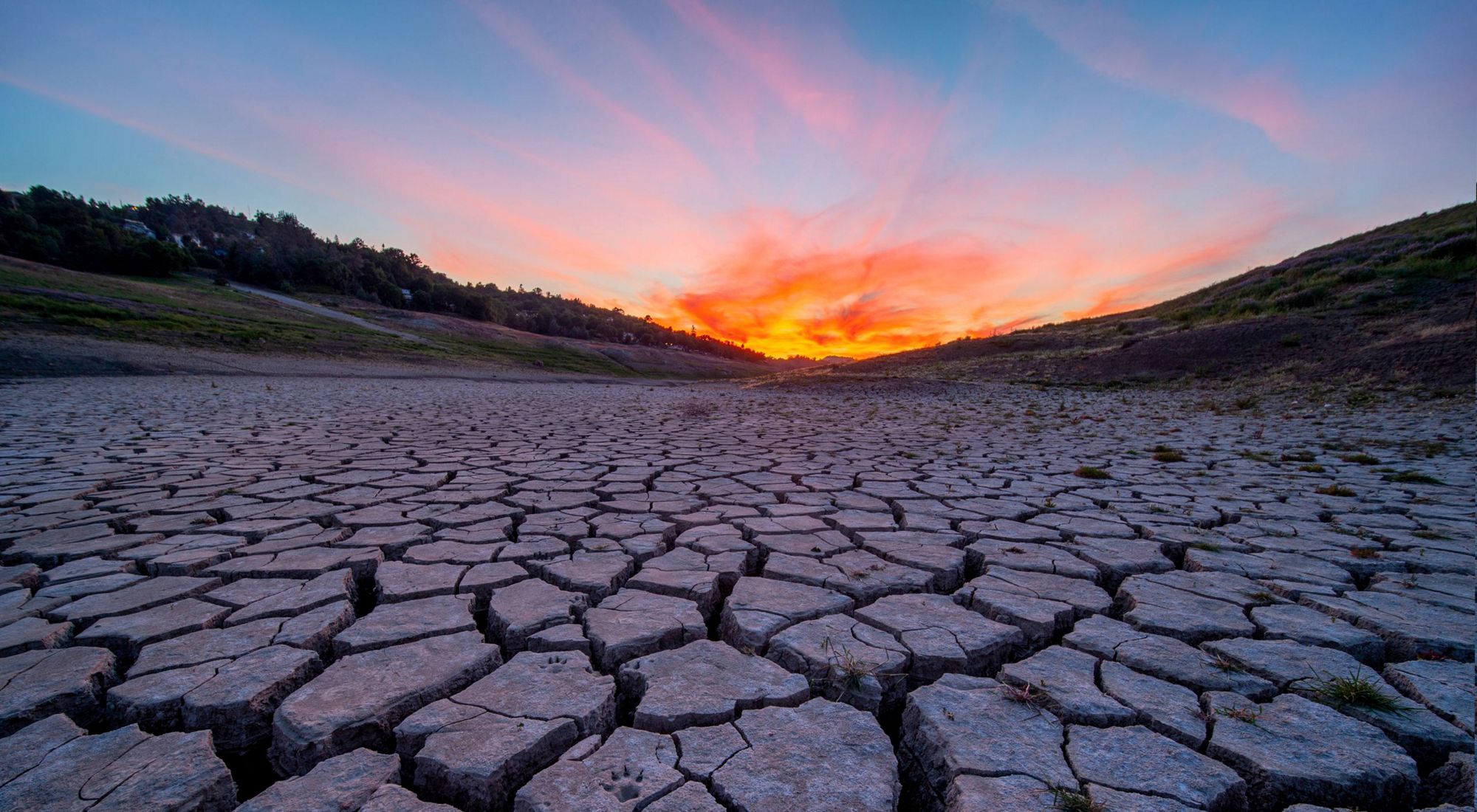
Geospatial Report on Freshwater Threat
In 2021, a TNC-led analysis showed THE freshwater ecosystems are declining in biodiversity and affecting human and natural systems more rapidly than marine or terrestrial ecosystems worldwide. To help address this critical issue, TNC created and applied the Durable Freshwater Protection Framework in the Nushiño-Curaray- Villano Fluvial Reserve, an Indigenous-managed reserve in the Ecuadorian Amazon. The reserve spans 371,000 hectares and includes 1,860 river kilometers of free-flowing rivers, 26,000 wetlands, and 80 Indigenous Waorani and Kichwas communities.
The Durable Freshwater Protection Framework uses geospatial information to support and ensure the long-term provision of water, food (e.g., fisheries), transportation, and other benefits for the wellbeing of local communities. This work and the value of Indigenous communityengagement and the critical role of geospatial technologies in planning are highlighted in TNC's 2022 Geospatial Annual Report and Map Book.

Mongolia on Equity In Herder Communities
A new report shows promising results stemming from efforts last year to raise awareness and promote gender equity among Mongolian herder communities. TNC led many of these efforts, including an exploration of eco-friendly nomadic toilets and sanitation designed to increase participation by both men and women in the field. In addition, leaders say the report is helping debunk widespread misconceptions around conservation and its impact on human health.
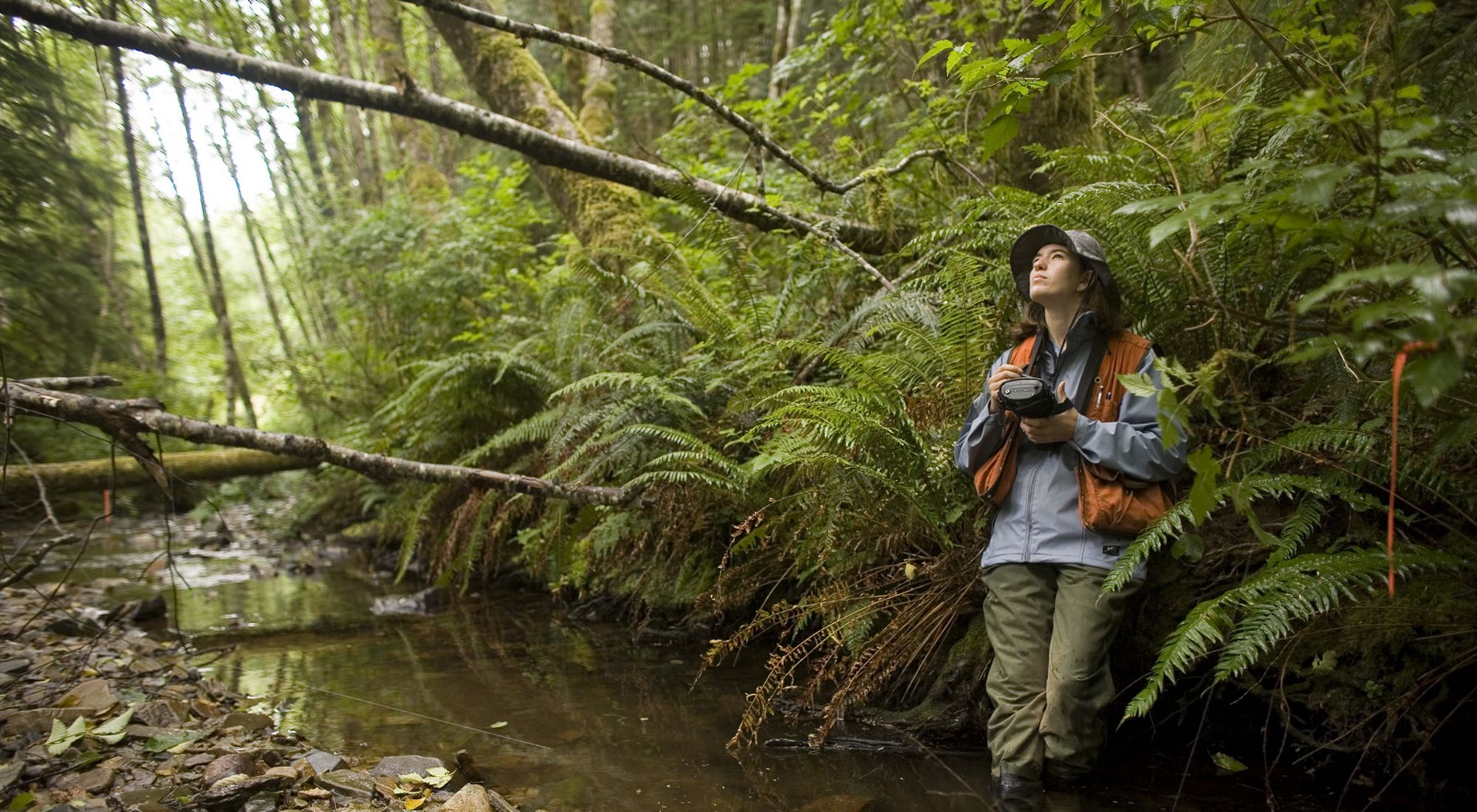
TNC Called Out for Publishing Gender Gap
In June 2022, following a thorough examination of all TNC-published scientific literature from 1968 to 2019, researchers from TNC and the University of Queensland uncovered a startling disparity: Only 36% of authors identified as women.
Project leaders in the Global South are now working to reverse this trend with measures that include addressing systemic gender discrimination in employment practices, building awareness around bias and systemic barriers and encouraging male authors to collaborate, co-author and provide appropriate citation for work completed by their female counterparts.
“Everyone should be heard and counted for, have equal voice in decision making, and be able to participate regardless of their race, ethnicity, gender identity, or socioeconomic status. Only by doing this, our conservation works can also be sustained and embedded within the people.”
— Hilda Lionata, Oceans Program Manager, YKAN/TNC Affiliate in Indonesia
“From previous working experiences, I recognize deeply how important it is to have DEIJ valued and viewed when conducting community work. I have been strongly encouraged by the courage, perseverance, brilliance and excellence of female peers and local community women.”
— Mengjiao Li, Senior Project Officer, TNC China

Indiana Newspaper Conservation Awareness
Many central Indiana community members, including subscribers of the Indianapolis Recorder newspaper, are not fully aware of the connection between environment factors and human health. To bridge this gap and motivate readers, TNC staff in Indiana partnered with the Recorder last year to create a new Environmental Reporter position. In June 2022, the paper welcomed Jayden Kennett, who covered a wide range of conservation topics with emphasis on how the environment shapes the lives of the Black community in Indianapolis.
In October, during the meeting of the Hoosier State Press Association, Ms. Kennett won the 2023 Nina Mason Pulliam Environmental Journalism Award for her in-depth environmental coverage in Indiana. She contributed more than 50 stories to the Indianapolis Recorder in 16 months!
“Each of us in this generation can take positive action to ensure high quality air, water, and soil are available to the generations that follow us. TNC wants Hoosiers to know that their individual actions to care for the natural world do matter and benefit their health and wellbeing.”
— Jayden Kennett, Environmental Reporter, The Indianapolis Recorder

Indonesia Fisheries Thrive With Policies
Since 2014, TNC has partnered with Yayasan Konservasi Alam Nusantara (YKAN) to advance gender equity and support ecosystem regeneration in the coastal regions of Indonesia, where local fisheries use traditional sais closures to prevent overharvesting.
Women have historically been excluded from sais management and other conservation efforts, but that began to change in 2014. After the Waifuna women of Kapatchol fought for and won ownership rights of a small sais location, representing a first in Papua history, TNC and YKAN assisted in setting catch limits and other regulatory measures, with impressive results that inspired village governments to expand the location from 32 to 215 hectares.
After successfully replicating these approaches in the neighboring villages of Folley and Southeast Misool, project leaders are now working closely with stakeholders in other communities to promote the benefits of gender equitable conservation.
“Everyone should be heard and counted for and have equal voice in decision making—from being an audience to an actor in natural resource management, to being able to decide what to do with the earnings. This project is about spreading transformative gender initiatives in a patriarchal, Indigenous context. It is also a test for us, the organization internally, on proving our hypothesis for success.”
— Hilda Lionata, Oceans Program Manager, TNC Indonesia

SE Europe Rally For Last Flowing Rivers
When the United Nations Convention on Biological Diversity released its Post-2020 Global Biodiversity Framework in the summer of 2021, it contained a clear mandate: Conserve at least 30 percent of lands and waters through protected areas and other effective area-based conservation measures. TNC and other groups in the Southeast (SE) Europe took that commitment a step further last year by introducing a United for Rivers coalition of seven partners committed to protecting 13 rivers across five Balkan nations.
“Vulnerable communities in the Balkan region and beyond often suffer from neglect and are left without a voice. TNC's commitment to protecting the rivers that connect the diverse countries of Southeast Europe showcases how involving all local stakeholders and fostering bottom-up, workable solutions can benefit everyone and ensure diversity, equity, inclusion, and justice remain key aspects of our work.”
— Igor Vejnovic, Energy Coordinator, TNC Southeast Europe
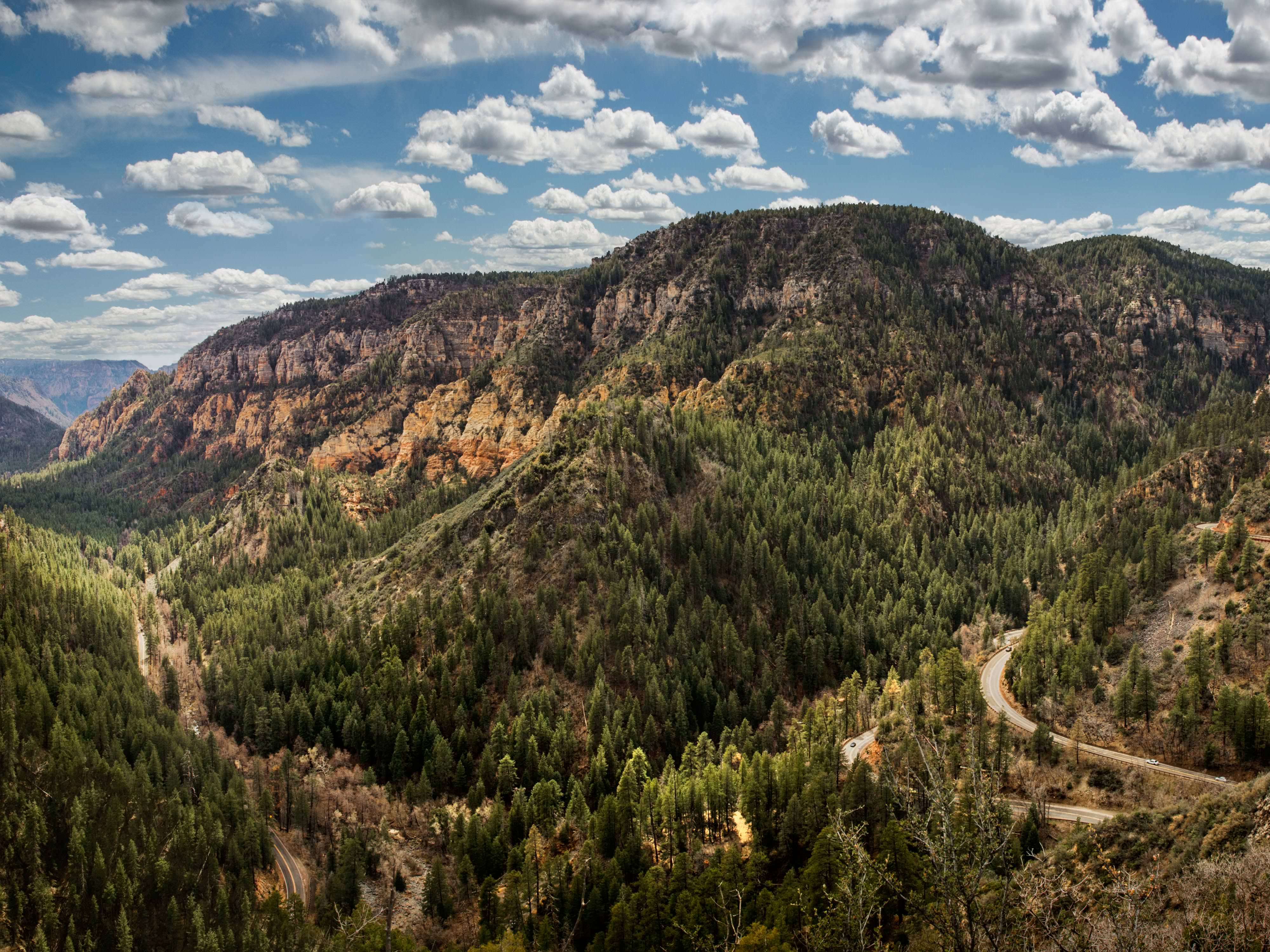
New Mexico on Indigenous Peoples Day
TNC New Mexico celebrated Indigenous Peoples Day in October 2022 and 2023 by inviting the state's first-eve Indigenous Program Directors, John Waconda and Brie Fraley, to share their thoughts on what the holiday means to them. These heartfelt messages were extremely well received, with visits to the page lasting an average of nearly five minutes.
"Learning how to work with tribes is important and is taking place across many areas of our conservation work. Awareness of many tribal needs creates opportunities, and that is happening in various programs I am being introduced to. TNC's experience and work across the globe, offers Indigenous people hope here in the US, that NGO assistance can be trusted and effective."
— John Waconda, Indigenous Partnerships Program Director, TNC New Mexico
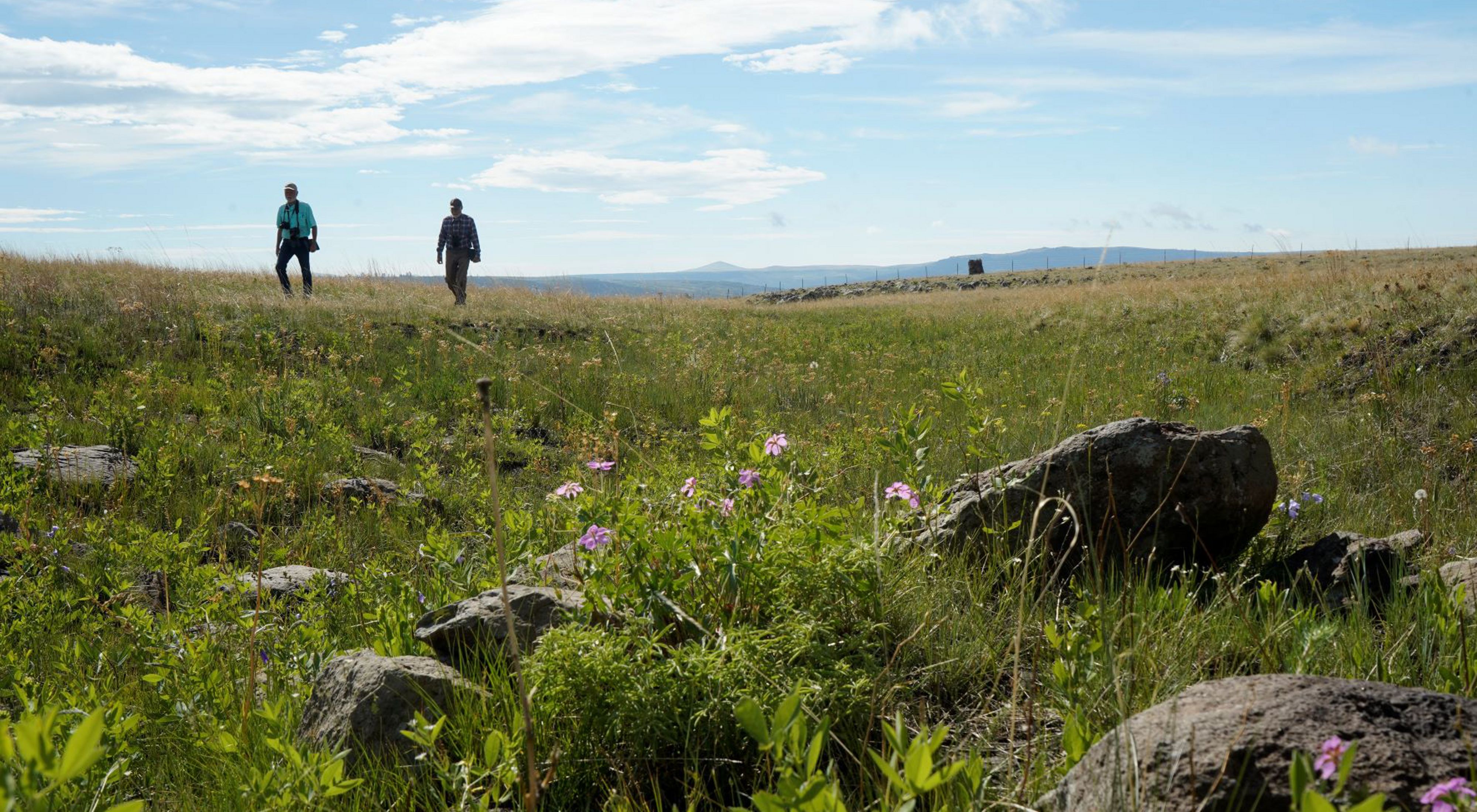
Advocating to Protect Field Researchers
In January, Anne Kelly, TNC Alaska Deputy Director teamed up with the Center for Ocean Leadership to research and find solutions for preventing high rates of harassment and assault against field researchers. Their published recommendations, on which she testified before the U.S. House Committee on Science and Technology, were ultimately included in the report in the federal CHIPS and Science Act. Anne is now working to implement these recommendations in TNC policy and practice.
“Because we have engaged in this work by following our partners’ leads, we have no room to act without integrity. This is really the heart of meaningful justice and equity work: the power dynamic is upended, and our local communities and Indigenous partners are
driving the goals. It’s a more equitable process that will lead to more equitable outcomes.”
— Dr. Anne Kelly, Deputy Director, TNC Alaska
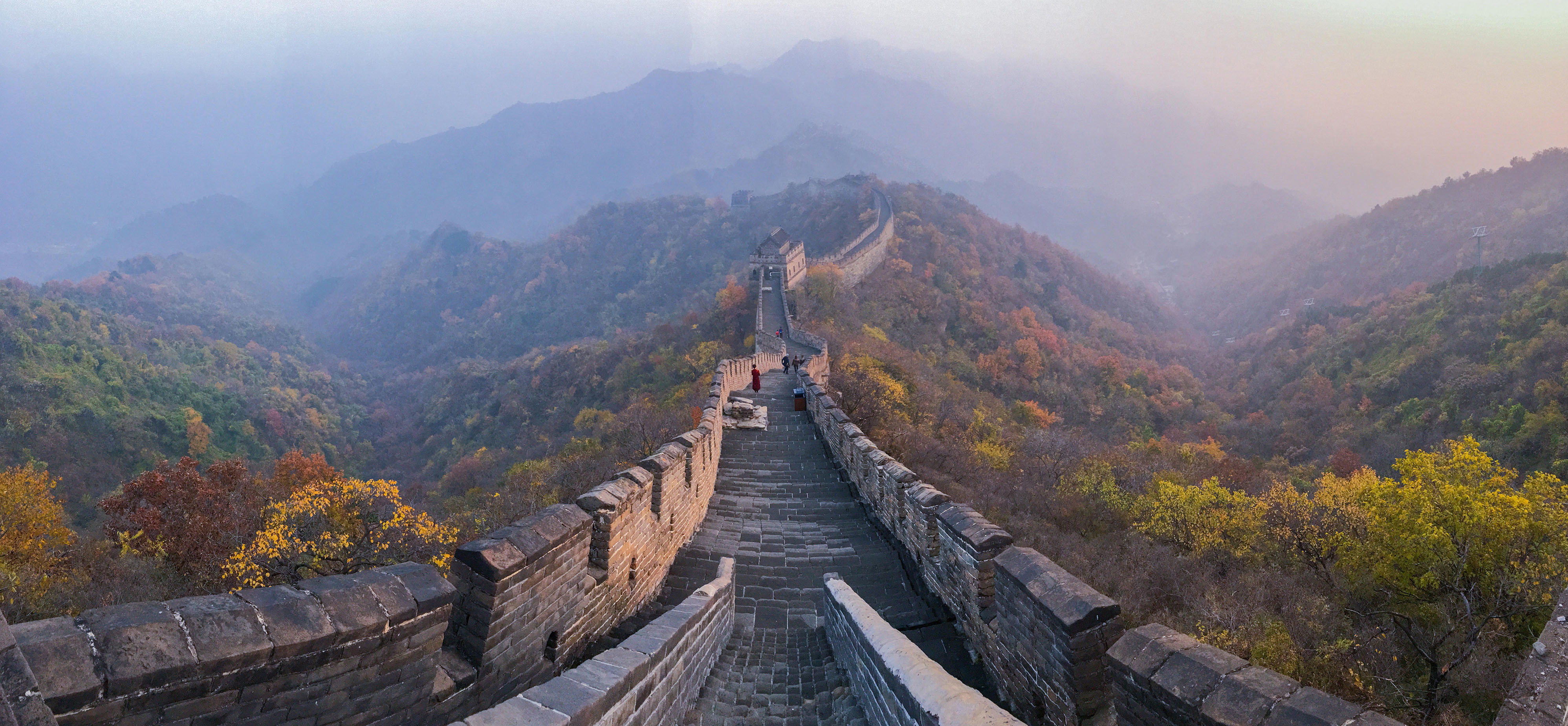
China on Combating Global Deforestation
Land-use change, principally deforestation, contributes 12% of global greenhouse gas emissions. The most important driver of deforestation is the global demand for agricultural commodities; agribusinesses clear huge tracts of forest and use the land for cattle ranching and to plant high-value cash crops like palm oil and soya.
As China is the top consumer market for these commodities, TNC’s Global Engagement teams are working with stakeholders in the region to advance responsible trade and consumption of these forest-risk commodities, with efforts that include:
- Regulatory measures that encourage China market demand for legally and sustainably sourced commodities
- Collaboration with trading partners on how and why to make smarter decisions in their sourcing
- Innovative financing to help support farmers and ranchers in producer countries their transition to zero conversion production
- Developing and fostering spatial remote sensing platforms and innovative analyses for practical business decision-making
“We are facing a complicated world—geopolitically, economically, culturally, and socially. Only by helping each other identify, understand, and incorporate DEIJ into our mission can we develop strategies to achieve lasting and sustainable conservation results to ensure fair treatment, access, opportunity, and advancement for all people.”
— Dong Ke, Global Engagement Director, TNC China
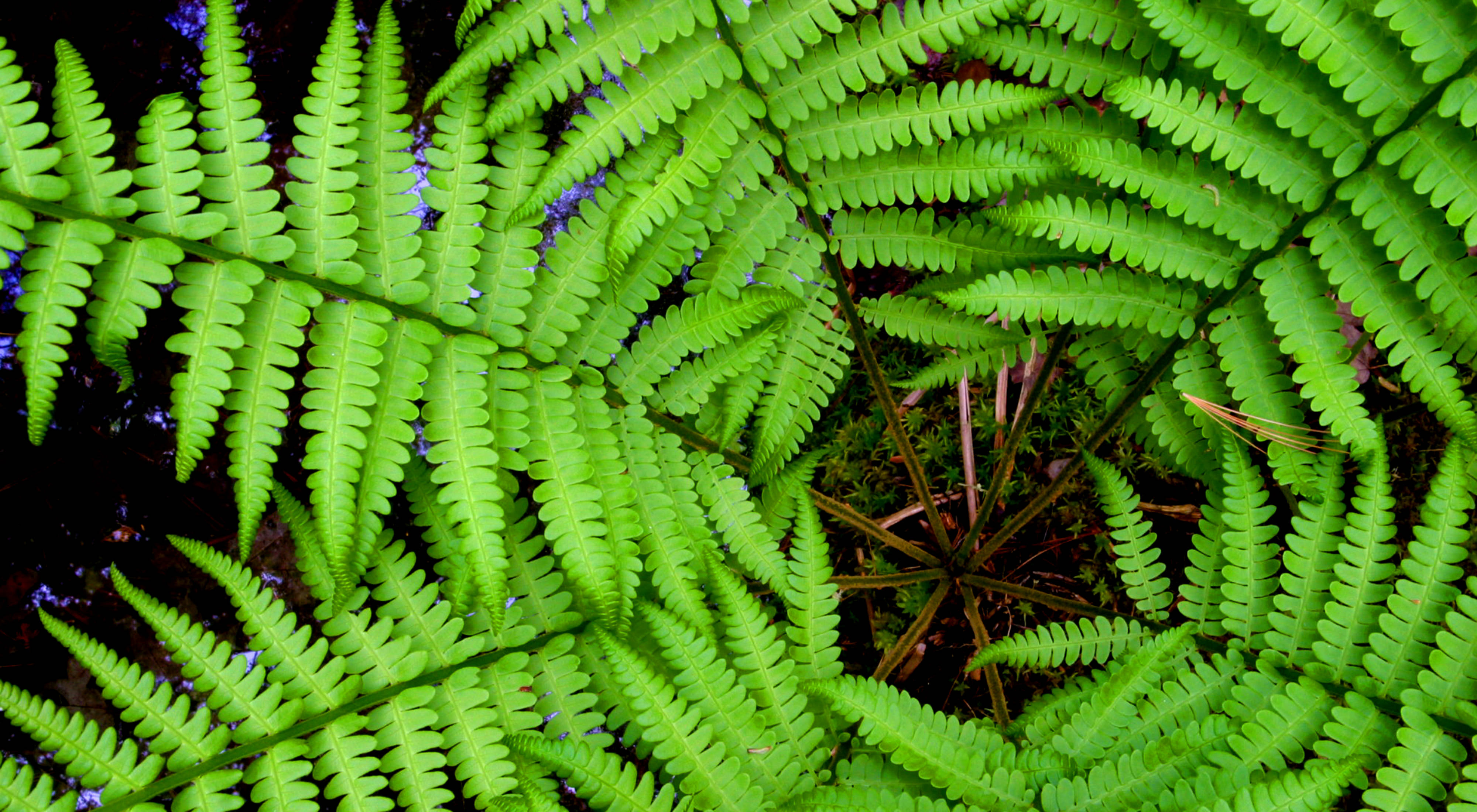
New Hampshire and Manchester Cedar Swamp
Last year, TNC colleagues worked closely with public transit providers and local BIPOC, LGBTQIA+, disability, and Senior communities to expand universal access to Manchester Cedar Swamp in New Hampshire’s largest and most diverse city. Transparency was key in the process, which involved six community-led listening sessions to ensure inclusion and accessibility by people of all ability and fluency levels in TNC’s approach to marketing, signage, and other project elements.
“By engaging new and existing partners, listening and learning from them, and respecting and accommodating their input, we have created something that resonates and is actively being used by a very broad audience.”
— Joanne Glode, Stewardship Ecologist, TNC New Hampshire
Download
Join us on our journey towards accountability by checking out some of our latest DEIJ related projects and learnings.
DOWNLOADDownload
Find stories and learnings from across the globe featuring Diversity, Equity, Inclusion and Justice projects and reflections.
DOWNLOAD
Resources
A DEIJ lens is essential when considering our investments and funding models worldwide.
Staff Stories
Explore our Resources section
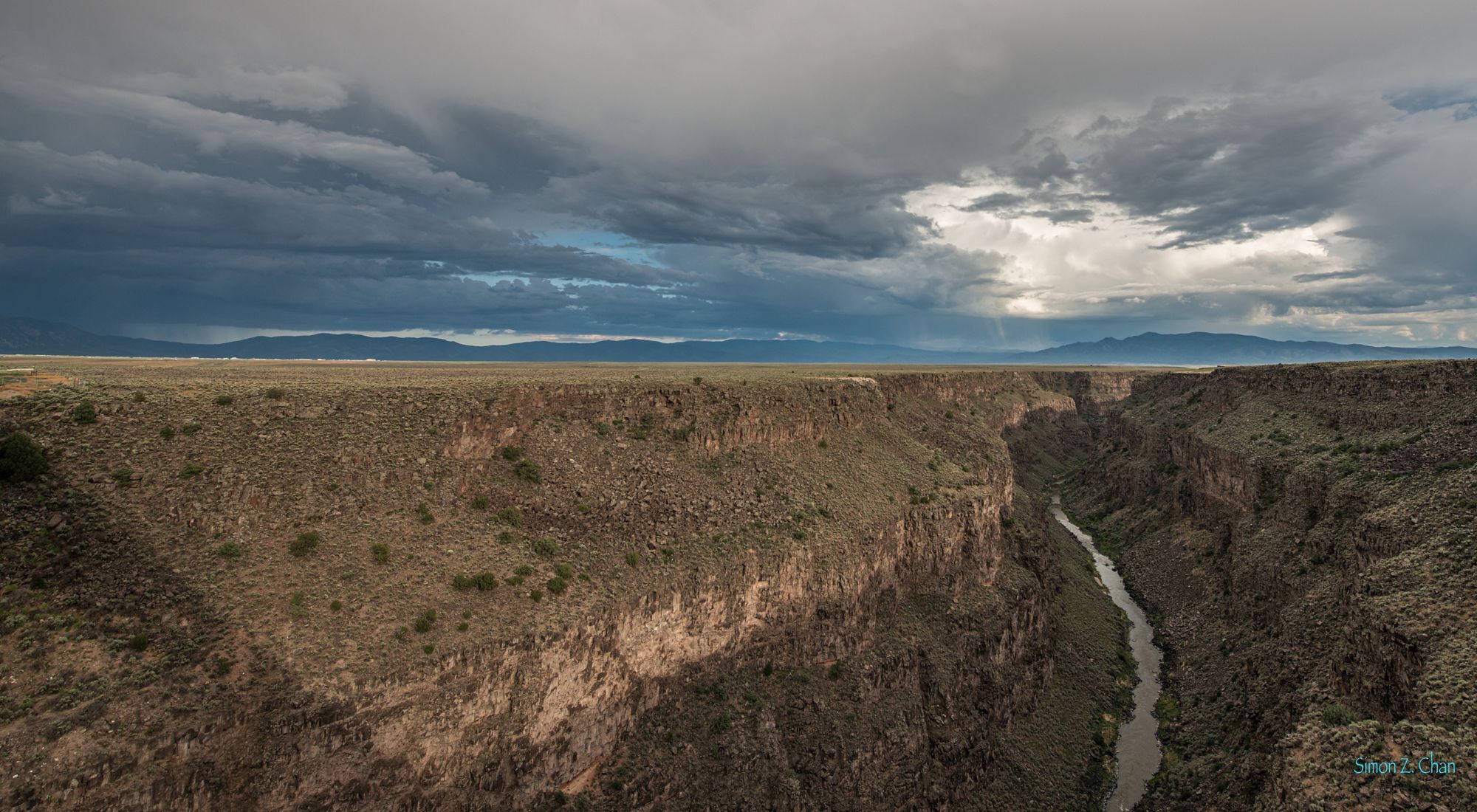
New Mexico Forestry Groups Center Tribal
The fires that swept through New Mexico’s “fire scar” in 2017, 2018, 2021, and 2022 could have caused much more devastation, had it not been for quick and decisive action by the TNC-led Rio Grande Water Fund (RGWF).
This collaborative of more than 100 signatories emerged in 2014 to generate sustainable funding to proactively increase the pace and scale of forest restoration, while simultaneously elevating voice and choice of the Santa Clara Pueblo Tribe. Now in its eighth year, the collaborative uses thinning and controlled burns to restore an estimated 30,000 acres per year, with priority given to the 600,000 acres that are most at risk for severe wildfire.
“The reforestation project with the Pueblo of Santa Clara was developed and implemented with the premise that a Tribal entity must take action to address environmental challenges on its reservation lands and adjacent ancestral lands. Immediate Pueblo-led actions were necessary to address post-wildfire impacts threatening the Tribal community—waters, lands, and forest resources that are all important to their culture, tradition, and life.”
— John Waconda, Indigenous Partnerships Program Director, TNC New Mexico
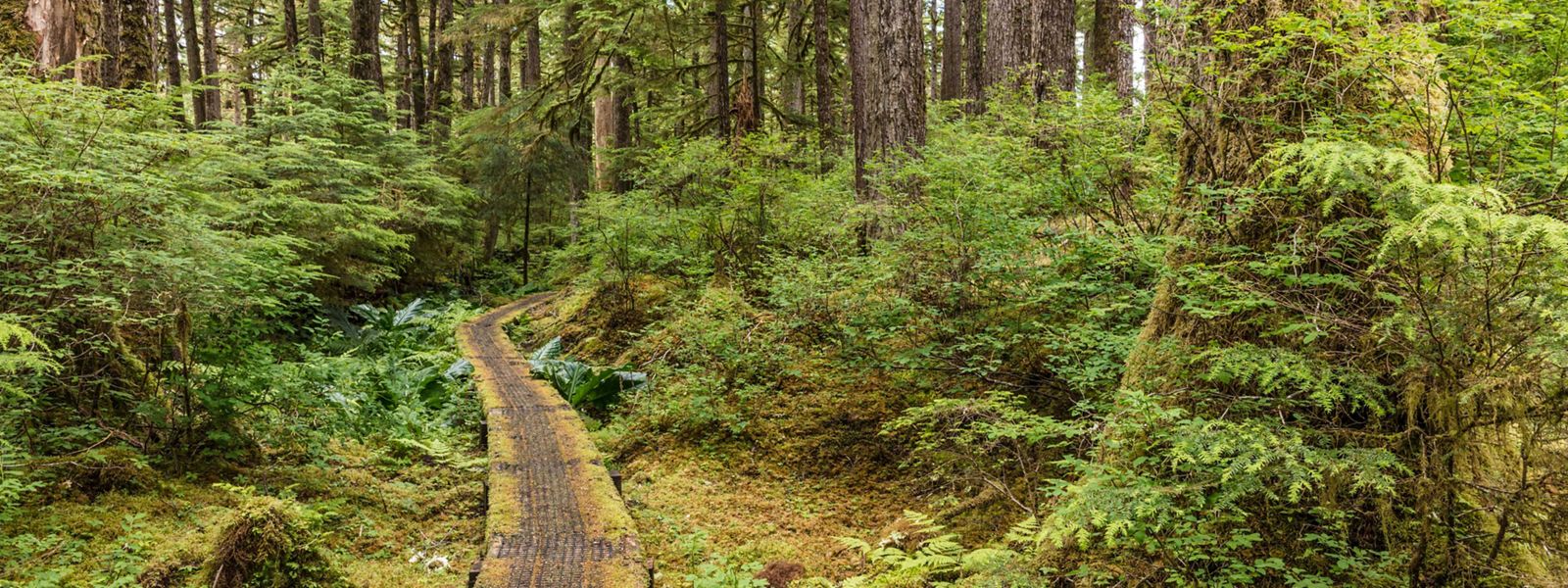
Alaska Leverages High Impact Credit
More than 30 years ago, TNC's Alaska chapter began working in partnership with individuals and regional organizations in Bristol Bay. TNC’s investment in the region got a big boost in 2022, when Bristol Bay was designated a High Impact Credit site for TNC fundraisers, incentivizing them to raise more money for this critical region. In doing so, TNC is elevating the priorities and voices of the region’s 7,000 largely Indigenous residents, who are now leading an effort to permanently protect Bristol Bay’s watershed and safeguard world’s largest remaining sockeye salmon run.
Now, chapter leaders are preparing for Bristol Bay’s next phase, which will require thoughtful, deliberate partnership and collaboration in a state that’s home to America’s highest concentration of Indigenous people, who are collectively the state’s largest private landowners, and where nearly 85% of the land is public. The overarching goal: Helping Indigenous communities avoid development pressures by supporting their time-tested values and vision for their economic, social, and cultural future of their homelands.
“Bristol Bay demonstrates the connection between an internal TNC initiative like High Impact Credit and real, meaningful impacts it can have on DEIJ work on the ground. The Alaska Chapter is working with local, Indigenous partners to support a future that they are creating for themselves vs. imposing our vision.”
— Ivy Spohnholz, Chapter Director, TNC Alaska

Ohio Donors Double Down on Support
Last year’s GDEI Annual Impact Report introduced readers to Jeff Chaddock and his husband Mark Morrow, two Ohio-based TNC donors whose generosity is changing lives for the better in local Appalachian communities. In 2022, the pair doubled down on their support for TNC’s work by hosting “High Tea & Trees,” a collaborative event where diverse but conservation-minded nonprofits can network, share their unique missions, and exchange ideas for achieving shared outcomes.
“By collaborating in this way, we’re not only gathering a diverse audience but, quite frankly, there is a common denominator among most of them for this world we’re living in—the world of conservation. That feels very, very good.”
— Jeff Chaddock, Private Wealth Advisor, TNC Donor & Appalachian Community Advocate

Tanzania's Boost From Darwin Initiative
For years, TNC has worked to strengthen capacities for community-led groups in Northern Tanzania to manage invasive grassland species and improve livestock and wildlife practices. Those efforts got a boost last summer, thanks to more than $5.6 million in joint funding from the UK government’s Darwin Initiative, combined with a matching gift opportunity from TNC’s Scale-Up Fund. Since deploying the funds, TNC and its partners have taken major steps to accelerate conservation across 3.6 million acres while improving the lives of Indigenous Peoples who rely on these lands.
“These agreements are a crucial first step on a journey to support these villages to optimize how they use their resources for themselves and wildlife, and to ensure that these benefits will withstand the pressures of population growth, unplanned development and climate change- driven drought.”
— Warda Kanagwa, Livestock and Grazing Officer, TNC Northern Tanzania
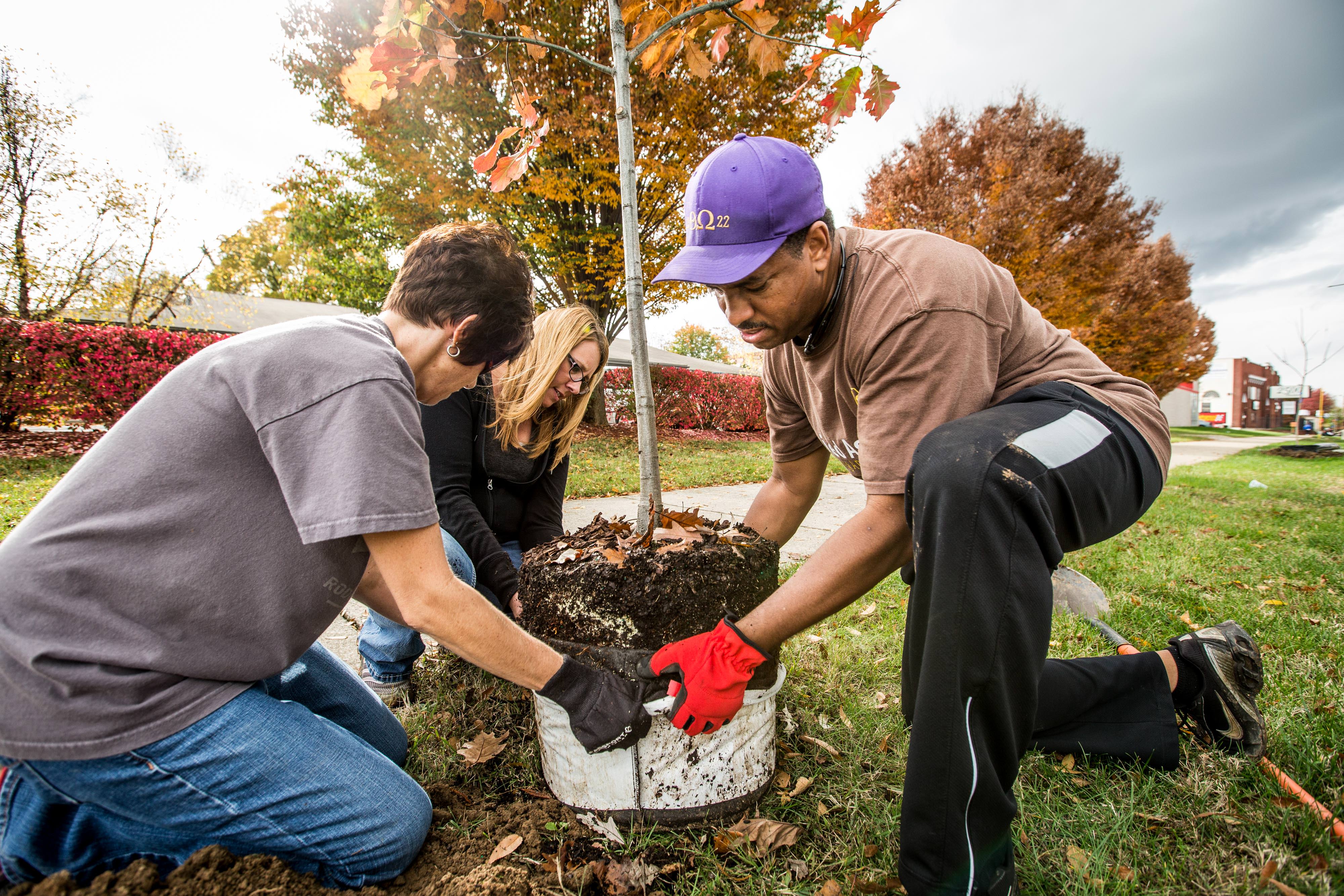
DEI Lens Tool Transforms TNC Training
Since launching its DEI Lens Tool in 2022, the Philanthropy Learning Team has been using it to improve internal training for TNC staff. Over the course of 2023, the team has applied the tool to thoroughly review and refresh global development training and curricula. The tool and its accompanying e-course feature scenarios aimed at helping curriculum designers weave DEI-focused mindset into materials development and delivery, ensuring that learning experiences reflect diverse identities, are designed and facilitated with attention to equity, and make all learners feel like they belong.
“We’re now measuring the results of these efforts, and we plan to continue modifying the DEI Lens Tool as we plan for future applications in 2024.”
—Grace Michel, Philanthropy Learning and Innovation Strategist, TNC Global
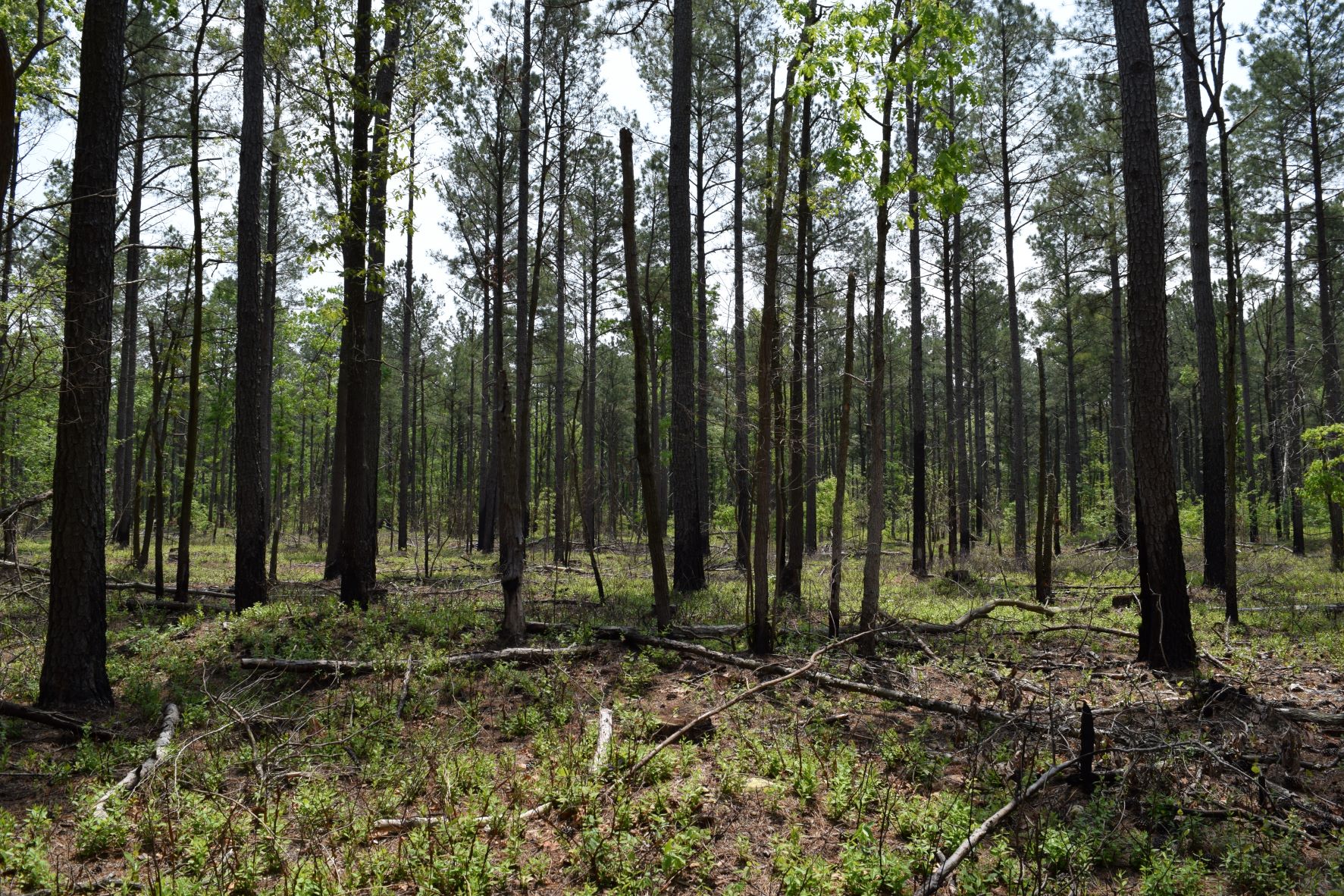
Indonesia Oversees Reforestation Forum
In 2007, TNC began designing and managing multistakeholder forums to convene Indonesian governments and estate crop sectors around reducing emissions from the oil palm sector in the East Kalimantan region. Those efforts culminated in the launch of a World Bank Forest Carbon Partnership Facility, which deployed an advance payment of $20.9 million USD in November 2022.
Now, leaders are sharing insights from the successful initiative, which has enabled 106 villages and community groups to manage approximately 225,000 hectares of forest. These TNC Indonesia program conservation missions in Berau, East Kalimantan, and with Berau Regency Government are continued fully by YKAN (Yayasan Konservasi Alam Nusantara).
“Multistakeholder Forum (MSF) is a strategic coordination platform which accelerated agreement and commitment building towards policy improvement around the sector. Through such platform the scientific approaches that we have prepared can be accommodated into diplomacy among actors.”
—Jevelina Punuh, Project Manager, TNC Indonesia
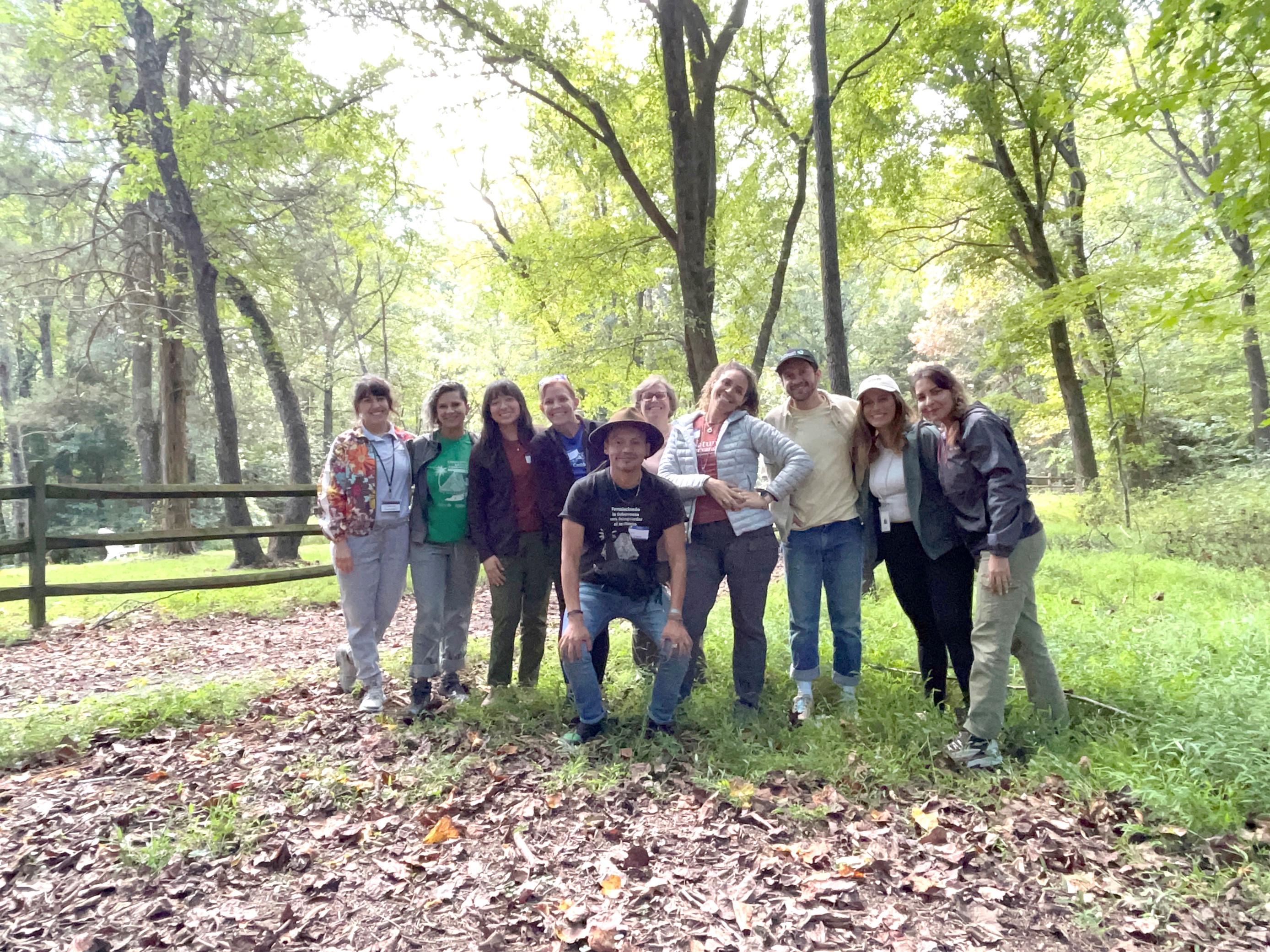
First-Ever DEIJ Action Fund Projects
In early 2022, TNC created the DEIJ Action Fund to help Business Units across the Conservancy overcome limitations in their efforts to advance diversity, equity, inclusion, and justice in conservation. In its inaugural year, the fund received 47 proposals and approved funding to support these 10 DEIJ-focused projects and outcomes for fiscal year 2023:
• TNC Global Science | Build a cohort of young and emerging DEIJ-focused conservation scientists to expand training and career opportunities for underserved BUs in North America, Africa, Asia Pacific, and Latin America.
• Caribbean | Hire a Caribbean-centered DEIJ consultant to co-develop guiding principles and a Chapter-specific DEIJ Framework with clear objectives and outcomes.
• Colombia, Latin America | Design and implement an intercultural meeting of Solano women in the country’s Amazonian municipality of Caquetá.
• Indonesia, Asia Pacific | Expand resources and capacity for assessing the role of women in small-scale fishery households in the eastern part of the country.
• Oregon, USA | Facilitate the flexibility needed to grow, adjust, and strengthen DEIJ focus for Portland’s Connecting Canopies equitable reforestation initiative.
• Pennsylvania & Delaware, USA | Establish educational pathways for staff to gain knowledge and engage in open dialogue around DEIJ, with communication strategies and messaging to convey the Chapter's DEIJ values.
• North America | Reduce known inequities in marine science and conservation by sponsoring diver training for students and young professionals from historically marginalized groups.
• Africa | Host focus groups and team-building activities centered on TNC workforce development to strengthen organizational culture and drive progress toward 2030 goals.
• Connecticut, USA | Shift resources as needed to formulate a comprehensive, sustained strategy for ensuring equitable access, management, and engagement at TNC preserves.
• New Zealand | Provide intensive learning and engagement opportunities with Indigenous Māori communities to increase cultural competency and collaboration.
Next up, the DEIJ Action Fund is welcoming another nine projects for a second round of funding for fiscal year 2024.
“We’re proud to have the opportunity to lead development of funding mechanisms that make a lasting difference. The DEIJ Action Fund is one such mechanism that ensures continued accountability and support from leadership. We want to see our organization as a conservation model for how the world approaches solutions for nature and people—using the DEIJ lens as part of who we are and how we drive our work.”
—Ruby Rivera Cruz, Equity and Partnerships Strategist, TNC Global DEI | Caroline Caggiani, TNC Global DEI Strategist
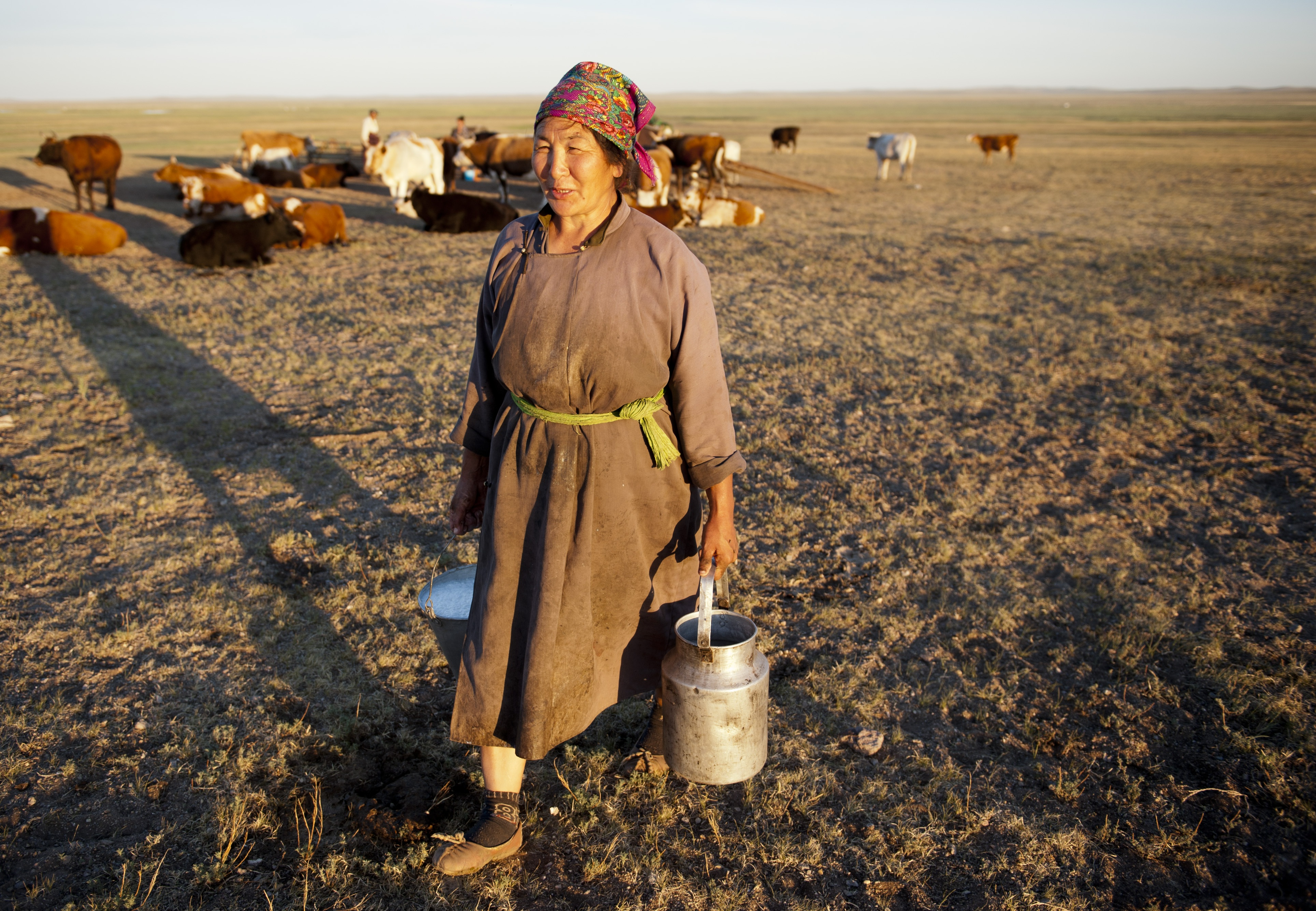
Asia-Pacific Equitable Protect Funds
Teams across the Asia-Pacific region moved the needle for gender equity initiatives in 2022, thanks to $5.1M in TNC partner funding from Deutsche Bank. Known as the Equitable Protect Project, this funding mechanism aims to boost DEI focus in conservation and protection efforts by enabling Country teams to:
- Hire additional staff dedicated to ensuring inclusive programming for women
- Conduct gender surveys that guide DEI project design and implementation
- Support relationship building efforts with Indigenous Peoples and Local Communities
“The flexibility that this type of funding provides has been key to the success of much of this work. There are often many opportunities for teams to apply for funds to implement protection or conservation activities, but few focused specifically on DEIJ.”
— Dr. Kathy Radway, Equitable Conservation Manager, TNC Asia Pacific Region

Global Teams Launch Diversity Program
Last year saw the introduction of the Supplier Diversity and Sustainability (SDS) program, a new collaborative effort between the Purchasing, Global Diversity, Equity and Inclusion (GDEI), and Sustainability teams at TNC. With the Conservancy’s 2030 Goals in sight, the program works to enable more sustainable and responsible supplier decisions and reduce TNC’s carbon footprint by:
- Providing greater visibility and insight into suppliers’ carbon emissions and diversity practices
- Increasing capabilities for tracking and measuring supplier use and spend
- Demonstrating TNC’s commitment and financial impact for diverse, Indigenous, and local suppliers
- Boosting our efforts to protect and restore natural habitats that help protect communities
As a first step, in June 2023 the SDS team began collecting contact information about TNC’s current suppliers to prepare a questionnaire with regard to diversity and sustainability practices. This data will be placed in a global database that Chapters and Business Units can use to identify SDS-compliant suppliers.
“As a relatively new employee at TNC, this project is very important to me personally. I am so appreciative that TNC emphasizes that how we work is just as important as what we do, because I feel so much closer and feel empowered to support this effort. What keeps me motivated is hearing and sharing the success stories of the impact that engaging with diverse and sustainable suppliers can have. I hope this will inspire others, too.”
— Maria Santillan, Supplier Relationship Manager, TNC Procurement
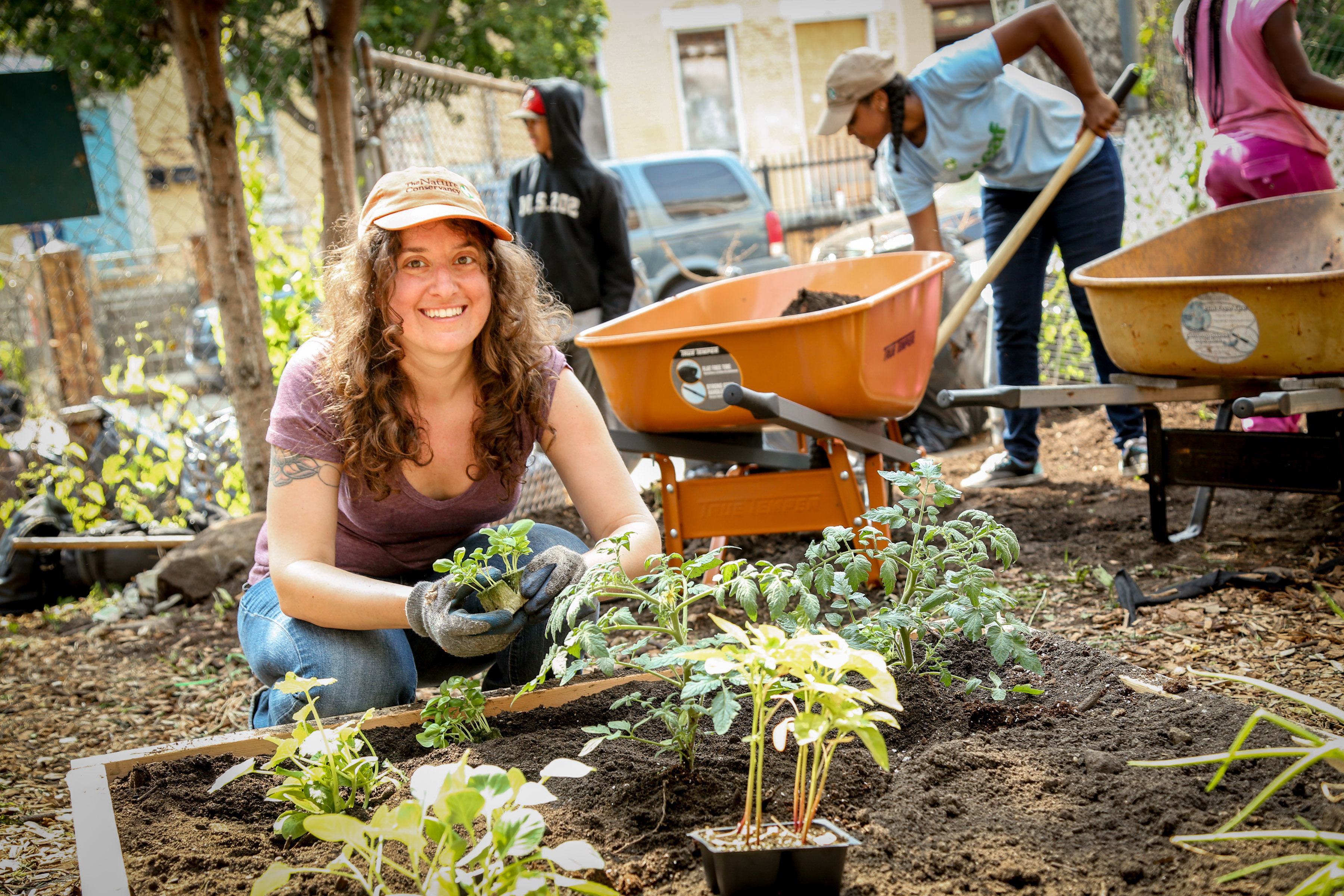
NY Common Ground Fund's Project Funding
Since its inception in 2021, the New York Common Ground Fund has provided support for a wide range of projects designed to advance existing and catalyze new initiatives aimed at enabling greater equity, justice, and sovereignty in the division’s conservation work.
The Fund team uses a highly flexible and collaborative process to select projects advanced by division team members, like the women-led Shinnecock Kelp Farmers, who received support to expand kelp farming to provide an environmentally friendly alternative to conventional fertilizer and uplift employment of Indigenous women, and enable Hunters of Color to expand safe and equitable hunting access for Black, Indigenous, and People of Color.
"I’m hopeful about the communities of support, formal and informal, within The Nature Conservancy that are forming and growing to learn about and address equity, justice and sovereignty. Diverse team members from across the Conservancy are speaking up for the communities they feel a part of, and local partners are telling me that they trust our team, even if they don’t yet trust the larger organization.”
— Emily Nobel Maxwell, Cities Program Director, New York
Download
Join us on our journey towards accountability by checking out some of our latest DEIJ related projects and learnings.
DOWNLOADDownload
Find stories and learnings from across the globe featuring Diversity, Equity, Inclusion and Justice projects and reflections.
DOWNLOAD

